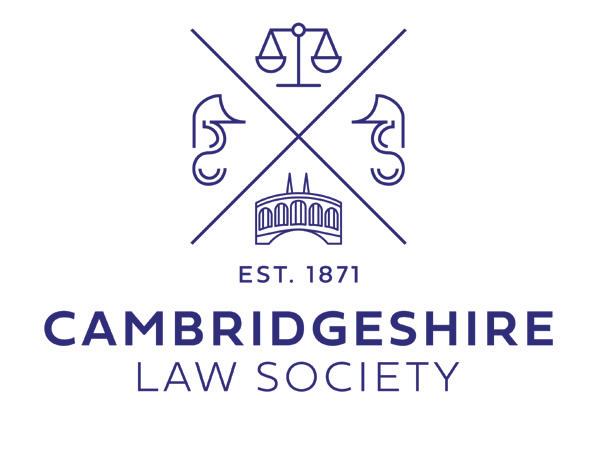






Deputyship and Statutory Will Applications: How does a probate genealogy firm help?
28 Do graduate solicitor apprentices have the best chance of passing the SQE?
30 Introducing FHM Forensic Accounting - a specialist forensic accounting practice based in East Anglia 31 Radical new tech development delivers seamless one stop ID verification process - a bona fide game changer for regulated businesses
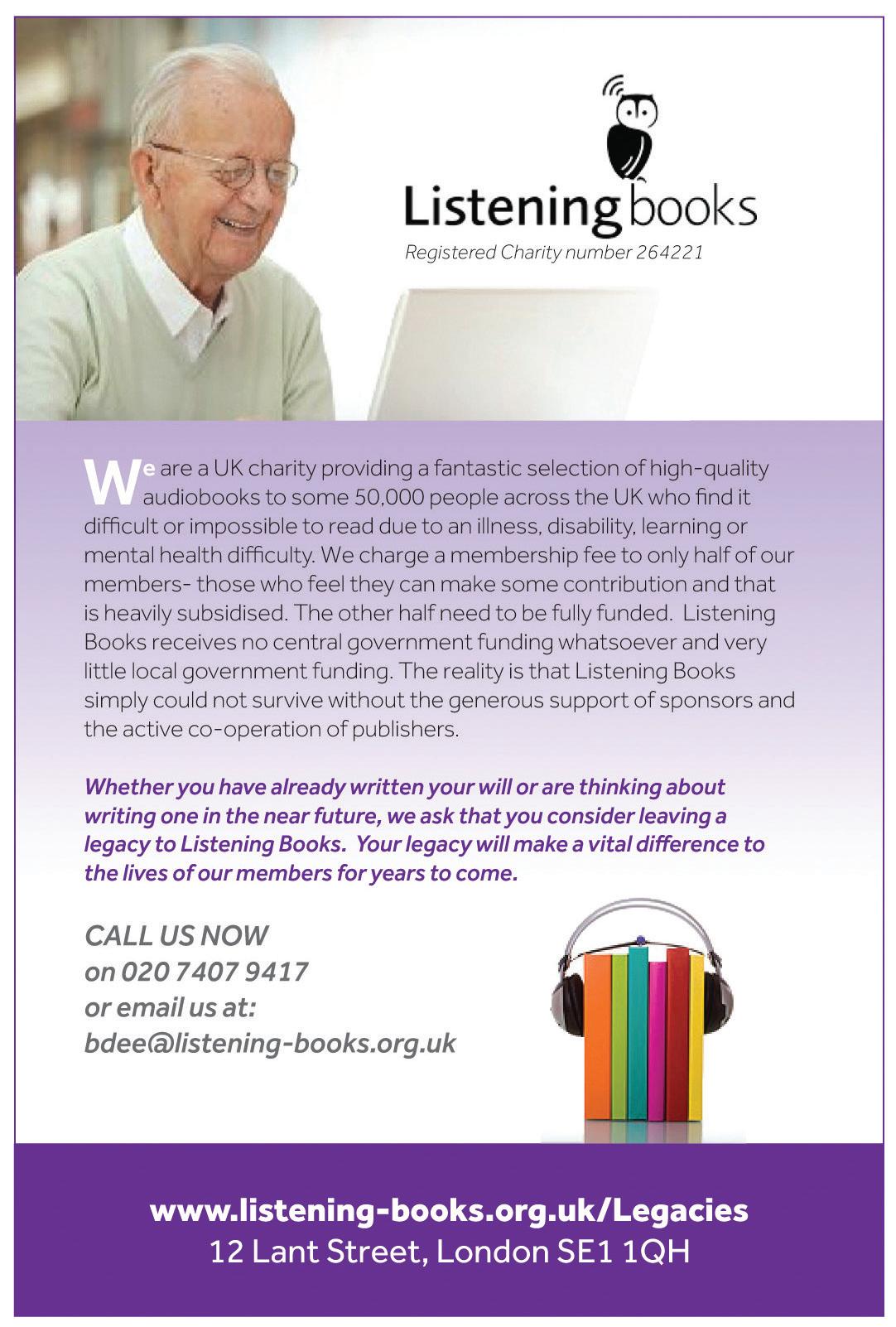


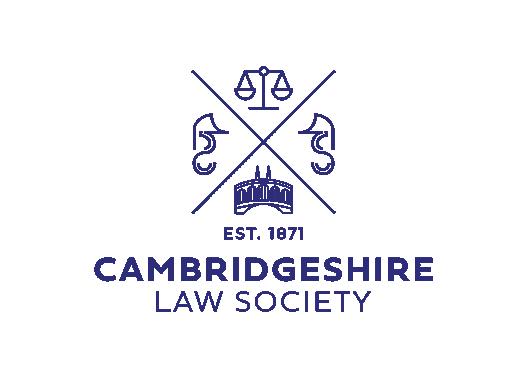
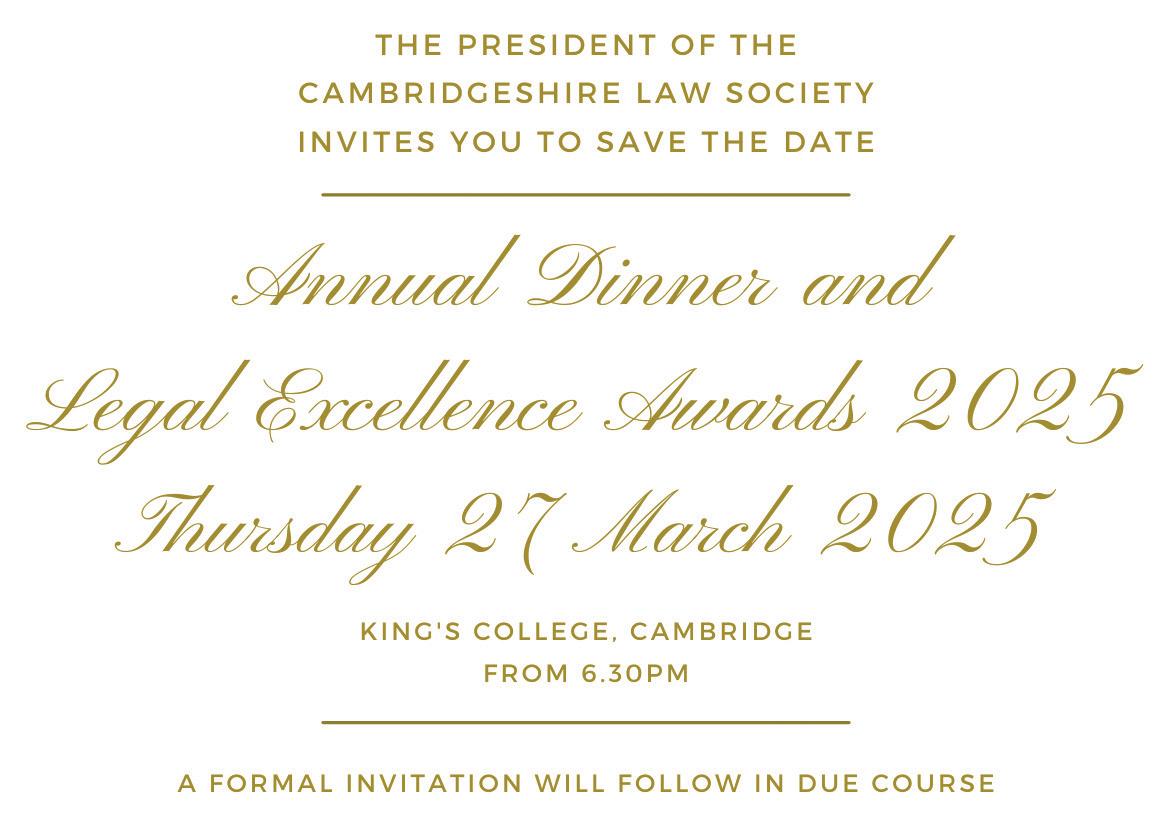
President James Allen Birketts
Honorary Secretary
Tom Fairley, Arm
Treasurer
Gary Hanson
Barristers Rep
Joshua Walters Fenners Chambers
Corporate Partnerships Officer
John Wright Woodfines
Corporate Sponsorship Officer
Fiona McLeman FM Family Law
Council Member
Michael Frape Ashtons Legal
Equality, Diversity & Inclusion Officer
Scott Smith Thomson Webb & Corfield LLP
In House Lawyers Rep
Anna Mortenson Nichino Europe
Junior Lawyers Division Representative
Jonathan Dattani Ashtons Legal
LEA Officer
Raina Victor Endomag
L&D Officer
Chris Hoole Appleyard Lees IP LLP
Parliamentary Liaison Officer
Chris Thomas Appleyard Lees IP LLP
Patent Attorneys Rep
Anwar Gilani Venner Shipley
PR & Social Media Officer
Josie Beal Birketts
Publications Editor
Kate Harris Birketts
Social Events Officer
Joanna Cotgrove Ashtons Legal
Sole Practitioners and Small Firms Rep
Sophie Scotcher Myers Law
Administrator
Penelope Harrington
Wednesday 23 October Committee Meeting On Zoom 5.30pm
Wednesday 10 October
EDI in discussion - “Life as a lawyer with kids” Birketts, 22 Station Road, Cambridge, CB1 2JD 5.30 - 7.30pm
Tuesday 10th December Festive Networking Drinks The Library, Clayton Hotel, 27-29 Station Rd, Cambridge CB1 2FB 5.30-7.30pm
STD
Thursday 27th March
Legal Excellence Awards 2025
King’s College, King’s Parade, Cambridge, CB2 1ST Drinks reception from 6.30pm
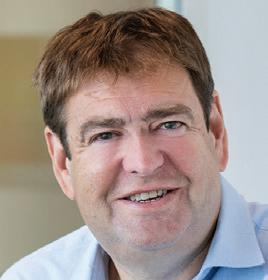
AJames Allen President, Partner, Head of Cambridge Corporate Team, Birketts LLP
s President of Cambridgeshire Law Society it is my great pleasure to extend a warm welcome to the new batch of trainee solicitors and newly qualified solicitors who are starting this September. This is an exciting time of year, filled with fresh energy and enthusiasm as we usher in the next generation of legal professionals.
September marks a significant milestone in your legal careers. As trainees, you are embarking on a journey of practical learning and professional growth. For newly qualified solicitors, you are taking your first steps as fully-fledged members of the profession. This transition represents years of hard work, dedication, and perseverance, and you should be immensely proud of your achievements.
I strongly encourage all of our newly qualified solicitors to attend the admission ceremonies held at the Law Society. These events are not merely formal proceedings but a unique opportunity to recognize your hard work and celebrate your accomplishments with friends and family. The ceremony is a colourful and memorable occasion that allows you to reflect on your journey and feel proud of becoming a lawyer. Many attendees have shared how touching and inspirational these ceremonies can be. It's a chance to connect with your peers, meet senior members of the profession, and truly feel the weight of the responsibility and honour that comes with your new role.
As you step into this new phase of your career, I'd like to offer some advice that I hope will serve you well. The legal profession is constantly evolving, and your education doesn't end with qualification. Commit to lifelong learning and stay abreast of changes in the law. The SRA requires all solicitors to maintain their competence throughout their careers. This isn't just a regulatory requirement; it's a professional necessity that will help you provide the best service to your clients.
Never be afraid to ask questions. The legal profession is complex, and no one expects you to know everything, especially at the start of your career. Asking questions demonstrates your commitment to learning and your desire to provide the best possible service to your clients. It's far better to seek clarification than to proceed with uncertainty.
Use this time to build relationships with your peers and senior colleagues. The connections you make now can become invaluable resources throughout your career. Attend local Law Society events, join committees, and participate in professional development activities. These networks can provide support, mentorship, and opportunities for growth.
The legal profession is constantly evolving, and your education doesn't end with qualification
While the legal profession can be demanding, it's crucial to maintain a healthy work-life balance. Make time for activities outside of work, nurture your relationships, and take care of your physical and mental health. A balanced life will make you a more effective and satisfied professional.
As solicitors, we are guardians of the law and protectors of our clients' interests. Always adhere to the highest ethical standards. Your reputation for integrity will be one of your most valuable assets throughout your career.
As you begin this new chapter, remember that your career is a journey, not a destination. There will be challenges and triumphs, moments of doubt and moments of exhilaration. Take pride in the profession you've chosen. The law plays a crucial role in society, and as solicitors, we have the privilege and responsibility of upholding justice and protecting rights. Your work will have a real impact on people's lives, and that's something to be celebrated.
Unfortunately, mistakes do happen. One of the most important lessons I've learned is the value of owning your mistakes and reporting them as soon as possible. In the legal profession, errors can have significant consequences, but attempting to hide them can be far more damaging. When you make a mistake:
l Acknowledge it promptly;
l Take responsibility;
l Learn from the experience;
l Implement measures to prevent similar errors in the future.
Remember, how you handle mistakes often says more about your character and professionalism than the mistake itself. In my experience, almost all mistakes can be resolved.
In conclusion, to the trainees, make the most of your training period. This is your opportunity to gain practical experience, explore different areas of law, and begin to shape your career path. Be proactive, seek feedback, and absorb as much knowledge as you can from your colleagues and supervisors.
To the newly qualified solicitors, congratulations once again on reaching this significant milestone. As you step into your new roles, carry with you the enthusiasm and idealism that brought you to this profession, tempered with the skills and knowledge you've gained through your studies and training.
Remember, the Law Society is here to support you throughout your career. We offer resources, continuing professional development opportunities, and a community of peers and mentors. Don't hesitate to reach out and take advantage of these resources. As you celebrate this next phase of your life, whether at your admission ceremony or in your day-today work, take a moment to reflect on how far you've come and the exciting journey that lies ahead. The legal profession is challenging, rewarding, and constantly evolving. Embrace it with enthusiasm, integrity, and a commitment to excellence. Welcome to the profession. We're delighted to have you join our ranks, and we look forward to the contributions you'll make in the years to come.
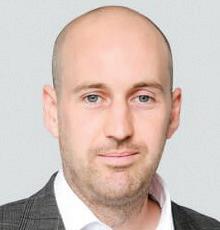
Chris Thomas Trade Mark Attorney and IP Solicitor Appleyard Lees IP LLP
Tortious liability operates as a limited exception to the general rule against piercing the corporate veil. Company directors can be held directly liable for tortious acts.
In terms of primary infringing acts, directors are liable for acts they have committed personally, and not simply in their role as an agent for a company. However, directors have been found jointly and severally liable as joint tortfeasors for actions on behalf of a company, where they were considered to have authorised, procured or directed acts amounting to infringement, or acted in common design with a company in commission of a tort (accessory liability).
In IP claims, it has been advantageous to name directors as defendants to an action for infringement of statutory torts, as joint tortfeasors, particularly in cases involving a sole director and shareholder, where there is a strong argument they are acting as the controlling mind of the company. Further, it has been held that where the primary claim for infringement is one of strict liability, knowledge of the infringing acts has also not been necessary for a finding of accessory liability.
In Lifestyle Equities C.V. and another v Ahmed and another [2024] UKSC, the Supreme Court addressed the question of accessory liability for the directors of a company in a claim for trade-mark infringement.
The claimants, “Lifestyle” brought proceedings against sixteen defendants alleging infringement of registered trade marks and passing off, including two companies: Continental Shelf 128 Ltd, and Hornby Street. The sole director of the first company, Mr Kashif Ahmed and his sister Ms Bushra Ahmed were named as joint tortfeasors. Both siblings were, during the relevant time, directors of Hornby Street.
At trial, both companies were found liable for trade mark infringement. The Ahmeds were found jointly and severally liable for the acts of infringement. Lifestyle elected to claim against the Ahmeds for an account of profits. The judge held that they were liable for 10% of their salaries from the relevant period, as well as a loan of £635,789 made by Hornby Street to Mr Ahmed.
The Ahmeds appealed the decision that they were jointly and severally liable for the infringing acts of Hornby Street and that they had made profits from those infringements for which they were liable to account to Lifestyle. Ahmeds’ liability was upheld, however the loan made to Ahmed was held not to count as profits. Furthermore, the Court of Appeal decided that income tax payable on the salaries should be deducted from the sums payable.
On liability, the Supreme Court disagreed with the Ahmeds’ claim that, provided they were acting within their roles as directors and were unaware of the unlawful activity, then they should not be held liable. The Court found that there was no such exemption for a claim for IP infringement in the ordinary principles of tort liability. However, the Court found that to be liable as accessories, the director must know, or deliberately avoid knowing, “the essential facts which make the act unlawful”. The director did not need to know that the facts were unlawful, merely that they existed.
The Court determined that the extent of the Ahmeds’ awareness fell
“well short” of the standard required, given that there was no finding the Ahmeds were aware of Lifestyle’s trade marks before March 2014 or that they knew or should have appreciated there was a likelihood of confusion between the signs.
The Supreme Court further considered, whether, if the Ahmeds had been found liable as accessories, what their liability would be on an account of profits and stated that:
1. A person should not have to account for profits made by another party as this would be tantamount to imposing a penalty or fine;
2. Knowledge of the act was not relevant when determining whether an account of profits should be awarded for infringement.
The Supreme Court decision places the onus on a claimant to demonstrate that a defendant director knows of the essential facts which give rise to the committing of the tortious act, before a director will be liable as joint tortfeasor, even where liability for the company as primary tortfeasor is strict. As the Supreme Court noted, if a defendant company is distributing counterfeit goods, and a director arranges for the sale of such goods, such knowledge will be sufficient. However, in cases involving infringement of IP rights, liability for a director as joint tortfeasor may not arise if the director can demonstrate that they either did not know of the other party’s IP rights, or there was room for honest opinion as to whether such acts were infringing.

Michael Frape Law Society Council Member for Cambridgeshire and Peterborough, Chairman Ashtons Legal LLP
The SRA issued its discussion paper earlier this year. It was their response to a marked increase in the number of law firm interventions especially the Axiom Ince collapse where £60m of client money has gone missing. The overarching question is whether the current regulatory framework is fit for purpose?
The stated objectives of the Review were to ensure consumers are appropriately protected when using regulated law firms, maintaining public confidence and trust in legal services, and finding the right balance to support a competitive legal market that enables consumer choice while keeping costs down. TLS responded to the review in July on behalf of the profession.
The review was in two parts. The first part concerned the management of risk. Three key areas of risk were identified:
l managing the risks associated with the failure of firms resulting from poor financial performance;
l managing the risks associated with mergers and acquisitions; and l the protection of client money.
The second part concerned the Compensation Fund.
The high-profile collapses including Metamorph, Kingly and Axiom Ince has raised questions about the risks associated with entrepreneurial structures and approaches to the ownership and management of law firms. Private equity firms are increasingly on the prowl for firms with partners seeking an exit. Associated with those developments have been the increasing number of law firm mergers and acquisitions. Transactions are inherently risky and therefore the SRA is interested in how they might be made less risky by regulation. Finally, in response to significant losses of client money, the SRA has queried whether solicitors should hold client money?
The abolition of client accounts would be a serious matter for the profession given that it is a key distinguisher from unregulated service providers and a significant source of income for law firms.
The SRA has yet to come forward with its proposals.
There was a full and constructive debate of the no confidence motion tabled by the Property Lawyers Action Group. The motion was however unsuccessful by a substantial margin. In response to the motion TLS conceded that it should have consulted the profession before launching the new form. TLS CEO Ian Jeffrey confirmed an extended consultation on the form. That consultation has started and will conclude on 15 January 2025. Over 1,200 conveyancers have signed up for the consultation.
Whether the process will satisfy PLAG and its supporters is however doubtful. One area of complaint appears to be the increasing complexity of the conveyancing process and its digitisation. This will drive the need for firms to buy expensive software, which may make residential conveyancing unviable for smaller players. Conveyancers are also concerned about potential civil and criminal liability by inadvertently providing incorrect information to buyers. The scope for that to happen is obviously greater where the information provided in the conveyancing process is much greater than previously. No amount of consultation will get around such matters.
The AGM will consider the usual business of receiving the Council’s annual report and approving TLS’s annual accounts. In addition, the meeting will consider a Council motion for the approval of payments to Council Members to replace the former annual expense allowance,
which ended in 2023 when an agreed concession with HMRC ended. The annual payment would be around £1,800. The motion argues that a payment is justified and appropriate given the role and responsibilities of Council Members.
In September, TLS celebrated five solicitors who had won the ‘Legal Hero’ Award. Legal Heroes are solicitors who have made a demonstrable and lasting difference to the lives of others, their local community or society and brought distinction to the profession. Follow this link to be inspired and maybe nominate a colleague for the award: www.lawsociety.org.uk/campaigns/ legal-heroes
Plans are well-advanced for the extensive and expensive renovation of 60 Carey Street, which is the President’s residence in London. Works will start in 2025 and take around a year to complete. This was seen by some as a controversial project given the cost and there were sound arguments for selling the property and using the money for TLS’s business. But that left the question of how would TLS accommodate the President in a satisfactory way and at a reasonable cost. As with many difficult decisions, there was no obvious right or wrong answer, but no one can say that the decision has not been fully or properly considered.
October marks the beginning of TLS’s bicentennial year. This is a huge milestone in TLS’s history and will be celebrated by a series of events over the next year or so. The main events will take place in 2025. On 1 October, TLS will be launching a specific Bicentennial section on its website to publicise those events and celebrations.

Scott Smith EDI Officer Senior Associate, Thomson Webb & Corfield LLP
Barred from applying
Historically, the profession had always been exclusively male, and when the Law Society of England and Wales was formed in 1825, the Society saw no reason to depart from tradition. The Law Society controlled the entrance exams, and applications by women at this time would routinely be refused on the ground of their sex.
Far from being deterred, women in the late 1800s and early 1900s would practice without formal title, and each year pioneers like Eliza Orme (who was the first woman in England to earn a law degree in 1888) would apply to the Law Society nonetheless seeking to be entered onto the roll without success.
In 1913, Karin Costelloe, Maud Ingram, Frances Nettlefold and Gwyneth Bebb like many before them would also all apply and be refused. However, the four women decided to take a stand and challenged the decision in the High Court. The case would be dismissed, but Gwyneth Bebb would go on to appeal the decision in the Court of Appeal. She sought a declaration that a woman is a “person” for the purposes of the Solicitors Act 1843 and that as a result she should be entitled to apply to become a solicitor. In what seems an unbelievable decision by today’s standards, Bebb lost her case on the basis that the judges believed there to be common law presumption that because no woman had practised as a solicitor before, Parliament could
This issue, we take a look a brief look at the history of gender equality in the profession and some of the trailblazers who became the first female solicitors in England and Wales, paving the way for a profession where women now outnumber their male counterparts.
not have intended that a “person” within the Act would include a woman!
After decades of campaigning, women like Bebb did eventually turn the tide, and in 1919, the Sex Discrimination (Removal) Act would be passed; this declared that “a person shall not be disqualified by sex or marriage from… entering or assuming or carrying on any civil profession or vocation or admission to any incorporated society”, finally removing the legal barrier to women being able to qualify as a solicitor.
Far from being deterred, women in the late 1800s and early 1900s would practice without formal title
Three years after the change in the law (owing to the time it took at the time to complete “articles”), Carrie Morrison became the first woman to qualify as a solicitor on 18 December 1922; her classmates on the entrance exam Maud Crofts (nee Ingram), Mary Pickup and Mary Sykes were all admitted to the roll shortly afterwards in early 1923.
Carrie Morrison was a first class graduate from Girton College, Cambridge and she worked as a teacher, in the Military Permit Office of MI5 and overseas with the army, all long before she was able to qualify. The usual five years of articles at the time were shortened to just two years with a firm in The Strand as a result of her impressive academic achievements and important war work. After qualifying she went on do pro-bono work in the East End of London, as well as become a strong advocate for divorce reform.
Maud Crofts also studied at Cambridge believing that education was the only way that women could achieve equality with men. Having been involved in the 1913 test case against the Law Society before she married, Crofts had been fighting for her right to qualify for a decade by the time she qualified in her 30s. She continued to fight for equal treatment for women after qualification, publishing her book Women Under English Law, a summary of women’s legal rights at the time and becoming a presenter for the BBC discussing family law.
Mary Sykes had started working in her father’s law firm before the 1919 Act was passed and started her articles as soon as she could afterwards. She later set up her own firm, looking to employ other women in the profession and would go on to become the first female Alderman and first female Lord Mayor of Huddersfield where she practiced.
Mary Pickup wasn’t able to leverage family connections to law, but after graduating from the University of Wales, would work for Thomas Pickup, a local solicitor in Birmingham, whom she would later marry. Despite being able and determined, it would be another decade before she would be allowed to start her articles in 1919. Pickup was also a passionate campaigner for equal rights, a regular speaker on such topics and was later elected president of the Birmingham Soroptimist Society.
If you are interested in finding out more about these incredible women and others like them, check out the First 100 Years website (first100years.org.uk), a charity which has been created to celebrate and educate others about the history of women in the profession.

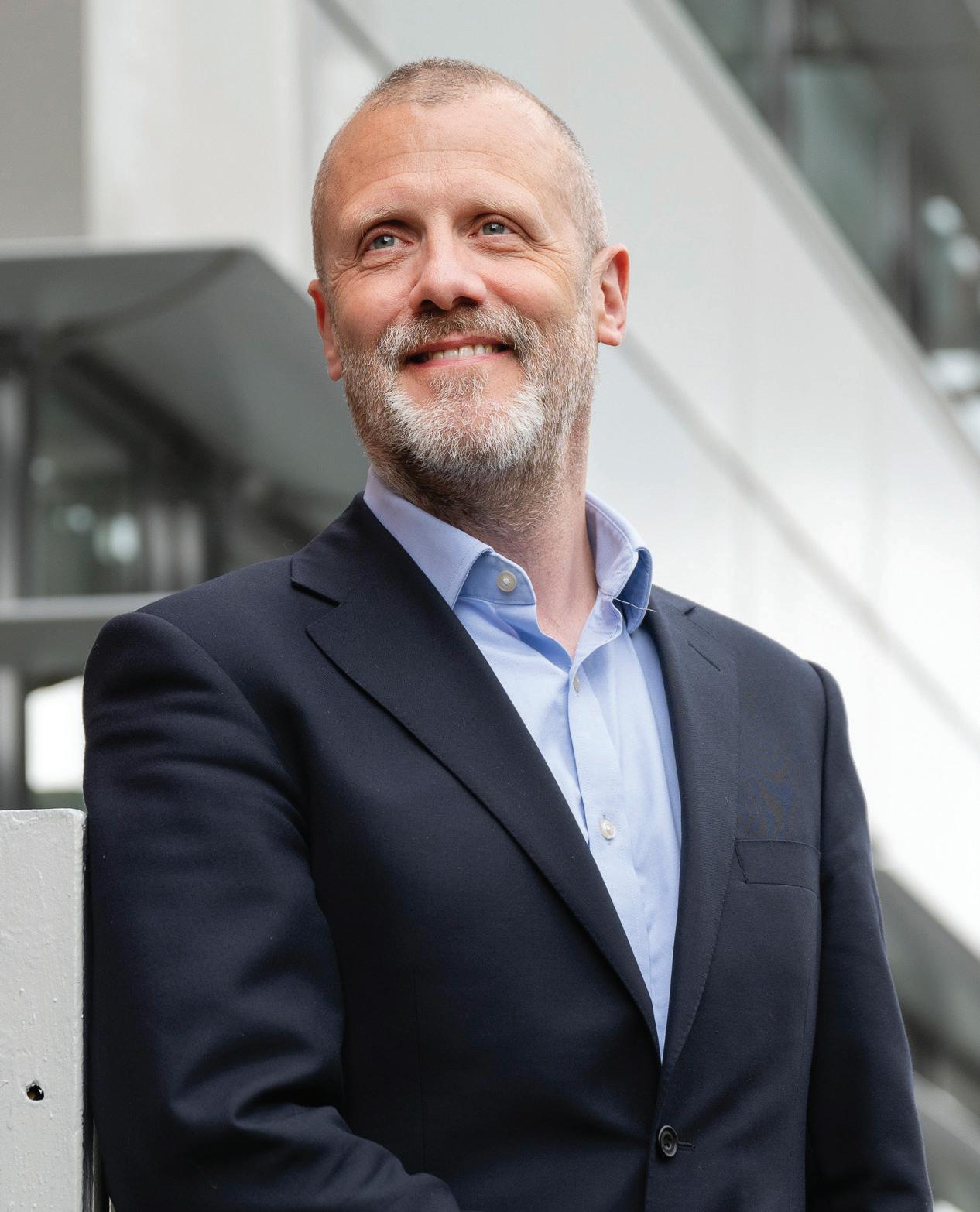
Having been invited to pen this piece on three occasions, and having swerved it successfully three times, I now find myself cornered and with no choice but to toe the line and contribute…
Penning anything about myself is my worst nightmare. As a self-deprecating lad from Burnley whose family still maintain I do nothing but “push papers around” (many days that feels hard to argue with) speaking about myself is a more uncomfortable task for me than appearing before the Court of Appeal. Nonetheless, here goes…
As part of the preparation for writing this, I reviewed the previous three contributions. All three were excellent. Sage words of advice from more seasoned and experienced lawyers than me. They appeared to have covered all the relevant ground, lessons and advice. An immediate brick wall. What could I possibly add? After much
soul searching, I came to the resolute conclusion - nothing! So I begin by commending to you the pieces penned by James Allen, Alex Schaafsmar and Ian Mather. Brilliant all of them. I found myself nodding along in agreement with all three.
And so my apologies, but instead I have hijacked this page of the newsletter which was supposed to be entitled ‘What I have Learnt so Far’ to draft a completely impromptu piece - ‘The journey so far’. In touching upon some points in my legal journey that commenced in 1996, I am hoping that there may be at least one point, observation or warning (don’t do this) that may serve some use. “If you can reach one person”…. - right?
The journey began age 13 when I realised I was not destined to grace the pitches of division one (sorry - I am pre Premier League). So I thought
‘solicitor’ might be a good back up plan. But, I was from a family where no-one had ever completed school, less even passed any exams or gone beyond. Now at a secondary comprehensive in Blackpool, the road ahead appeared quite long.
If you want something enough, with a (very) little talent and ‘great deal’ of determination you can achieve much. (If I had my time over, I would have aimed for barrister, but more on that later.)
Do not be intimated by ‘Rupert from Eton’ who one evening introduced himself to me with a flourish in a dining hall at Wadham College. “Mike from Blackpool” I muttered apologetically. Not the response he was expecting as he turned to the chap from Harrow to his left. It left me feeling like an imposter. A feeling that I have experienced a number of times over the 37 years that followed my decision to enter the law. It is only in later years I have come to realise that if you are where you are, you are there for a reason and have most likely earned it on merit. And you do belong. No imposters here…..right? Well, not so fast.
After 14 years as a qualified solicitor, partner for ten of those years, at two different firms, I had the temerity to think I could be a Judge. I had no role model. No elder partner mentoring me. I did not know any Judges. There was no one guiding me through the challenges that the bench would require from someone like me. But then - ignorance is bliss….
I applied to be a Deputy District Judge in 2012. To my amazement, I was appointed in Feb 2013. Again, a ‘great deal of determination’ can go a long way. None less so than when I cornered Sir Terence Etherington and Sir Alistair Norris at a Chancery Bar/Judiciary meeting in Liverpool in 2014. Pinned against a finger buffet, they realised the only way out of their predicament was to grant me a Chancery Ticket, or have to leapfrog a platter of prawn vol-auvents…. And so my Chancery Ticket was earned. Kind of.
Having reached what I thought was the pinnacle of my judicial career in
2014, I again had the pure cheek to apply to be a Recorder in late 2019. (Part time Circuit Judge for any out there who would need to look that one up - as many of my Litigation Partners did!) More the hallowed ground of counsel. Again, the Gods must have been smiling upon the lad from Burnley as I was appointed a Recorder in 2020.
Do not believe everyone else is better than you. More knowledgeable. More intelligent. Perhaps, sometimes, some of them may be. But a great deal of the time, they will not be. Believe in yourself. You are where you are on merit. A determination and hard work can go an awfully long way. (Difficult to remember when you are in the Judge’s dining room sat between High Court Judges….)
Where to begin….?
I have made many mistakes throughout my legal life. From losing my first two trials as a qualified solicitor in the space of the first two months of qualification; to failing to realise one of the barristers on one of my cases was not joking when he laughed and told me, outside court on day three of a one week trial that was going badly, that it was all ok as he had written the expert report and it said everything it needed to! It was only in the following hours when I saw our expert crumble in court that I realised it was true…. (The barrister was later disbarred and in fairness even to me, I inherited the case 3 weeks prior to trial)
It is corny - but every mistake (or loss if you are a litigator) teaches you something. It genuinely does. Learn from it. I certainly did and am still learning.
I cannot teach anyone what to do, or what not to do. After many years of dispensing advice, I have come to realise that advice can be good, but it can also be poor. Or simply not right for you. Remember, I am still on a journey (and not yet finished)… But there are perhaps some ‘tips’ that I would put out there to take from what you wish:
In all you do. It is the cornerstone of what we do. Be fair with clients,
Penning anything about myself is my worst nightmare. As a self-deprecating lad from Burnley whose family still maintain I do nothing but “push papers around”
colleagues and opponents (sorry for the terminology - I am a litigator at heart). You will not be liked by everybody. But if you are fair, you will be respected and likely all the better for it.
As a lawyer, it is all too easy to get swept along by your client’s views, case, deal or perspective. But I think that our clients are perhaps best served if we can see all sides to a view/argument. In remaining objective it is perhaps easier to provide the best advice.
3.BELIEVE
You have reached where you are on merit. You deserve it. Do not believe that everyone else is better than you. They are probably having the same thoughts.
4.ENJOY THE JOB
This can mean different things to different people. I have worked at four firms over the last 28 years. A couple of them very large, a couple not so large. Each lawyer is likely to want something a little different from their career. It may be ‘genuine’ work life balance. It may be to become Managing Partner. Whatever the journey you choose, make it the right one for you. (This is what led to me ultimately cross qualifying as a barrister in 2021 - some 24 years later than it should have happened but better late than never). The job is so varied that whatever you are looking for is almost certainly out there. Be brave and find it and spend your career doing what you want to. Not what you feel you have to.
OK. The homily is over as I am starting to wince at myself. Thank you for your time and patience if you made it this far.
Michael Green Partner, Howes Percival LLP


company’s assets, including its IP rights. Certain points which arise on detailed due diligence include:
l There is a distinction between acquiring a patented technology and ensuring that its use in a product will not infringe an earlier patent. A patent attorney can assist with prior art searches to review potentially relevant earlier patents which may pose an infringement risk and to assess the strength of a granted patent. Patent mapping services can be used to obtain a full breakdown of a firm’s patent portfolio, detailing key areas of protection.
l For priority filings, it is essential that all inventors have been identified and/or have assigned their interests to the patent owner, before the priority date of the patent.
l Registered designs are not substantively examined for validity on registration. A trade mark registration may be obtained where a third party has earlier rights, which can be used to invalidate a registration/and or pursue an infringement claim.
l Where validity of IP rights does not depend upon registration, e.g. for copyright, it is important to demonstrate chain of title to works in order to be able to assert ownership. The author should be identified along with a dated original document and any necessary assignment of rights to the current owner.
It may be appropriate for IP rights to be held by a holding company and licensed back to a trading company to avoid IP rights being subject to floating charges, or in the event of the main trading company becoming insolvent.
Intellectual property rights form part of a company’s assets which will pass bona vacantia to the Crown in the event that a company is dissolved. Whilst such assets can be purchased from the Crown, as a rule the Treasury Solicitor will not offer any undertakings as to the validity of any IP rights, nor agree to transfer goodwill or past rights of action, nor will it take steps to prevent the lapse of any such rights. The Treasury Solicitor takes the view that it may not deal with or transfer IP rights
registered abroad. Ensuring that such rights are transferred out of a company is therefore important.
Works and inventions in which IP rights subsist and which are created in the course of employment will belong to the employer. However, where an invention is devised outside of normal employment hours or outside of the place of work, ownership may depend on whether an employee’s duties mean they have a special obligation to further the interests of the employer. It is important to ensure that there are relevant IP clauses in place to ensure the transfer of IP in an invention to an employer. Consideration should be given to protecting confidential information when an employee leaves an employer. Only trade secrets are protectable post-employment, absent a properly drafted restrictive covenant and such covenants must be appropriately drafted to avoid being a restraint of trade.
Computer programs which have a technical application may be protectable by the grant of a patent. Frequently however, copyright is the key IP right protecting the source code. A software developer will wish to retain ownership of its background IP to enable it to use coding in other projects, whereas a client paying for development work may be concerned to ensure ownership of IP to prevent others from developing similar applications. When IP is transferred, a client should ensure that the source code is transferred to enable it to engage other developers to carry out upgrades.
A manufacturer may work solely to a customer's design, or may have a role in designing a product, or create a process for creating a product, which may be patentable. A manufacturing agreement should have IP clauses establishing ownership IP rights, including rights in any manufacturing processes. Title to tooling and equipment should be addressed. If manufacturing is outsourced, it is important to have an agreement in place, and to protect IP rights in the relevant jurisdiction as otherwise it may be difficult to prevent copying of products/ know-how.
There is a fixed cost regime for IP claims up to a value of £500,000 in the Intellectual Property Enterprise Court. Recoverable costs are capped up to trial on liability (£60,000) and quantum (£30,000), with each stage of proceedings also capped. This means that whilst the client may not recover all its costs in these proceedings, they can quantify their exposure to costs if they lose the case.
When taking on a dispute involving IP rights, it is important to be aware that a counterclaim is available for making groundless threats.
It can be an important step for a charity to trade mark its name to avoid third parties, including commercial parties, from taking advantage of a charity’s goodwill or misrepresenting a connection to a charitable endeavour in order to sell commercial services.
Most universities will retain ownership of IP rights in works created by students and researchers. Spin out companies are in place to exploit university inventions and it is important to ensure that proper consideration is given to ownership of IP when research and development is conducted with university departments.
Whilst IP rights are not a common part of practice, it is important to recognise the potential value of IP rights when handling assets, both on a divorce and when handling a deceased person’s estate.
Patent and Trade Mark Attorneys are regulated by IPReg and are often limited to practising law in the field of IP. Full-service law firms may not have patent attorneys who can draft patent claims and advise on protecting a client’s inventions. For this reason, it can be helpful to build a commercial relationship with an IP practice to ensure that a client is best advised on how to protect their IP.

Chris Thomas Trade Mark Attorney and IP Solicitor Appleyard Lees IP LLP
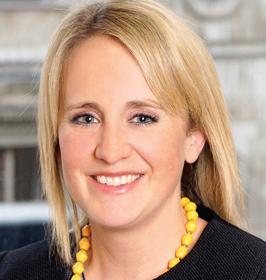
Kate Harris
Editor, Partner Birketts
LLP
Here is a round-up of the latest moves, promotions and achievements of Cambridgeshire Law Society’s members…
New trainees for Mills & Reeve
In September, Mills & Reeve
welcomed ten trainees to their Cambridge office. Amanda McLaughlin, Lucy Howard, Rachel Roberts, Kamile Rawlinson, Alice Dick and Gracie Burton all start their training contracts following other roles within the firm while Valentine Doan, Sidney Jayes, Safier Lewis and Miranda Lee join from elsewhere.
Birketts welcome trainee solicitors Eight trainee solicitors have joined Birketts’ Cambridge office. The class of 2024 are:
Angela Le, Eleanor Bird, Eleanor Hydleman, Hannah Findlay, Henry Steele, Isabel Harmer-Borley, Thomas Holmes-Chatfield and Una Foy.
Matthew Newnham, Partner and Birketts’ Training Principal added: “Birketts is fully invested in our training programme, and we’re delighted to welcome another cohort to the firm for 2024. We wish them all the best for the next two years and look forward to guiding them at this stage of their careers.”

Kate Harris
Editor, Partner Birketts LLP
Mills & Reeve’s Commercial team advises NHS trusts on implementation of critical new IT system Mills & Reeve advised Norfolk and Waveney’s three acute hospital trusts, made up of James Paget University Hospitals NHS Foundation Trust, Norfolk and Norwich University Hospitals NHS Foundation Trust, and The Queen Elizabeth Hospital King’s Lynn NHS Foundation Trust, on the installation of a shared electronic patient record (EPR) system across the Norfolk and Waveney Acute Hospital Collaborative.
This is one of the biggest pieces of digital transformation work that the Norfolk and Waveney Integrated Care System has ever undertaken - moving from paper-based patient records to electronic ones. The EPR will use cutting edge technology to create a new digital system. Staff will therefore be able to access health and care information quickly and securely, meaning patients will experience faster and better care.
Mills & Reeve partner Sophie BurtonJones headed up the team advising the trusts on the EPR procurement. She commented: “We’ve been supporting NHS trusts with EPR procurement and contracting for many years. As such, we’re delighted to work with the acute trusts on their contract for a new shared EPR across the entire Norfolk & Waveney Acute Hospital Collaborative.”
We are continuing to celebrate the successes of our member firms and to bring you news of the biggest deals and wins from across the County. Here’s what’s been going on this quarter…
Ed Taylor, EPR executive lead for the finance and commercial workstream, added: “The EPR will revolutionise the management of clinical information, helping drive improved standards of service across Norfolk’s three acute hospitals. The approval of the Meditech contract, supported by Mills & Reeve, is another step forward in the development of this important project, and we appreciate their assistance throughout this process.”
Mills & Reeve advises on University Merger
A multi-disciplinary team from Mills & Reeve, led by Cambridge based corporate education partner Poppy Short has been integral in advising St George’s, University of London on its merger with City, University of London to form City St George’s, University of London on 1 August 2024. This is the largest merger in the university sector for decades and may pave the way for other university mergers.
The merger brings together two leading universities with complementary strengths to create City St George’s, University of London, one of the largest destinations for students in the capital and a major university powerhouse. City St George’s will be one of the largest suppliers of the health workforce in London,
offering a range of innovative and interdisciplinary programmes and research opportunities, as well as enhanced student experience and employability prospects.
Poppy Short said: “This merger is a testament to the dedication, resilience and ambition of both universities, and we are proud to have played a role in making it happen. The merger process was complex and required cooperation and determination on all sides, it was a real team effort.
Working on this merger and others, Mills & Reeve has a unique insight into the process and can offer invaluable support to other universities considering mergers or other forms of radical collaboration in an increasingly fragile sector.”
Professor Rachel Allen, Interim Executive Dean of St George's School of Health and Medical Sciences, said: “I would like to thank Poppy Short and the rest of the team at Mills & Reeve for the incredible commitment they have shown, and the support they have offered, throughout this process. Their attention to detail, expertise in higher education law, and solution-focused advice were invaluable in enabling us to navigate a wide range of complex legal matters, without which our merger would not have been possible”.
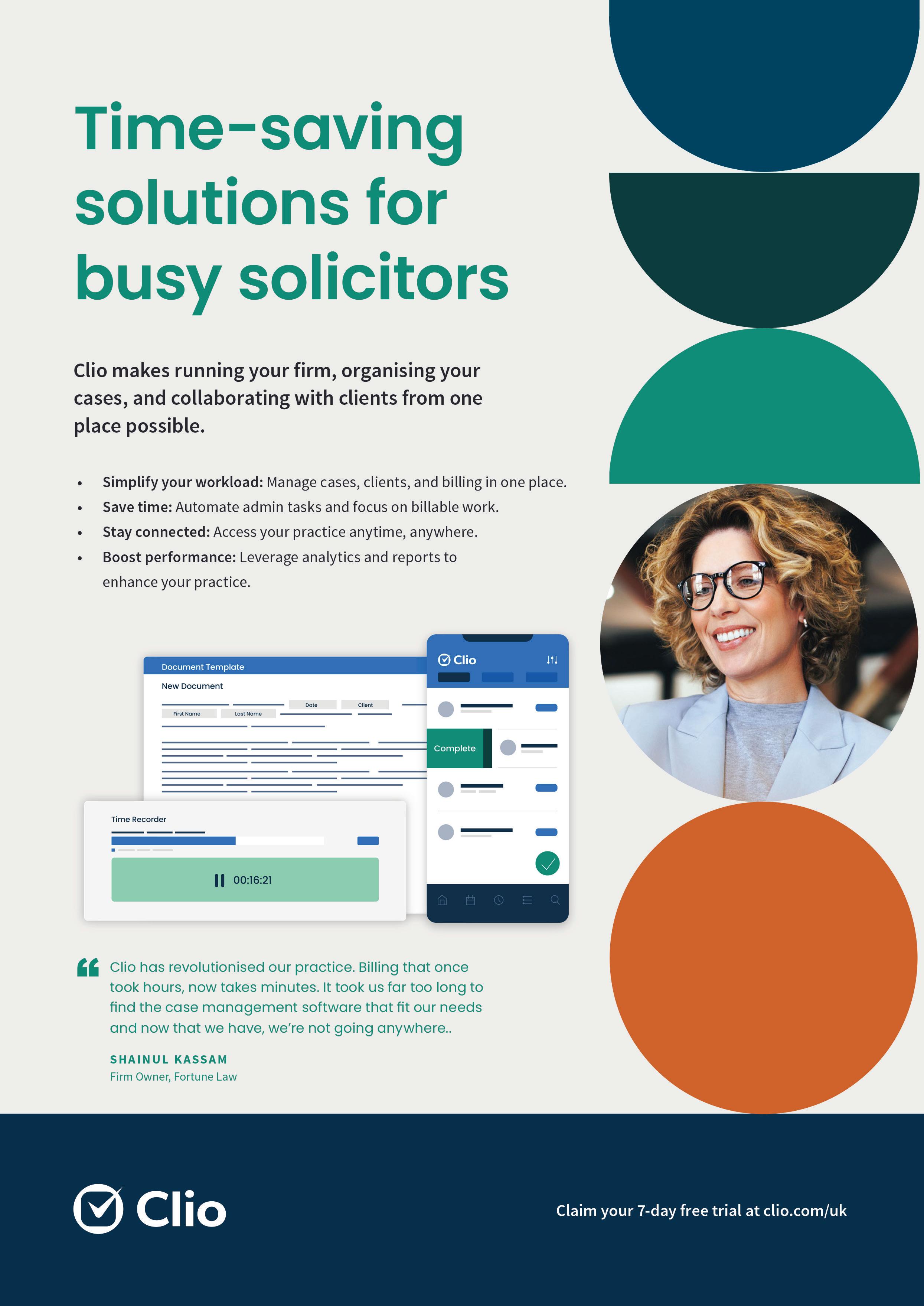

Toby Brown Barrister, South Square Chair, Pro
Bono Week UK
Across the UK every year, lawyers, solicitors, barristers, legal executives, students, firms, chambers, and people in advice organisations volunteer their expertise and time to provide free legal help for those in need.
As you know, many law firms run their own dedicated pro bono initiatives for their staff to get involved with. A range of charities and organisations provide advice and information about pro bono work, such as LawWorks, Advocate, Free Representation Unit and Pro Bono Connect. Here at Pro Bono Week UK, we’re really proud to partner with organisations like this, and so many of
you, to make Pro Bono Week a reality every year.
With less than two months to go, you’re invited to join this year’s Pro Bono Week UK from Monday 4th to Friday 8th November.
Together, we will celebrate the important role of the legal and charity sectors in providing pro bono help. It’s a fantastic opportunity to thank lawyers and highlight your commitment to pro bono.
Over 3,000 people took part in Pro Bono Week 2023, organising and attending events, publishing reports or launching new initiatives.
WORK AS A PRO BONO LAWYER IS REALLY VALUABLE - ULTIMATELY LISTENING TO CLIENTS AND EXPLAINING THEIR CASE DEMONSTRATES HOW IMPORTANT IT IS TO HEAR THEIR VOICES
an individual who took part in pro bono week last year
YOU’RE INVITED TO ORGANISE OR ATTEND AN EVENT, LAUNCH AN INITIATIVE OR SHARE ON SOCIAL MEDIATHERE’S SOMETHING FOR EVERYONE!
Last year’s highlights include:
■ The UK’s first pro bono litigation support service, Pro Bono Expert Support, was launched
■ A Guide to Pro Bono and Other Free Advice in England and Wales, as well as a Guide for Scotland, were launched
■ The Law Society of England and Wales shared stories showing the impact of pro bono from those who signed their flagship Pro Bono Charter
■ The National Pro Bono Centre launched guidance for retiring lawyers to start taking part in pro bono work
■ 62 events took place across the UK
■ Hundreds across the legal sector spread the word on social media
Help us make Pro Bono Week 2024 even bigger and better than ever before - and there are lots of free resources to help you.
Justice of the UK Supreme Court, Lady Simler, and the Attorney General of England & Wales Lord Hermer KC, are already set to feature on our exciting panel at the launch eventmore details below.
This year’s overall theme is the power of pro bono. The three subtopics are:
■ Barred from justice - the powerful, everyday stories of the impact of lawyers and law students who protect the rights of those most disadvantaged in society
■ Embedding pro bono in your organisation and careerplacing pro bono at the heart of everyone’s practice and hearing from those at the forefront of establishing business structures for pro bono
■ How technology can enhance access to justice - existing and new tools to ensure pro bono is innovative and effective
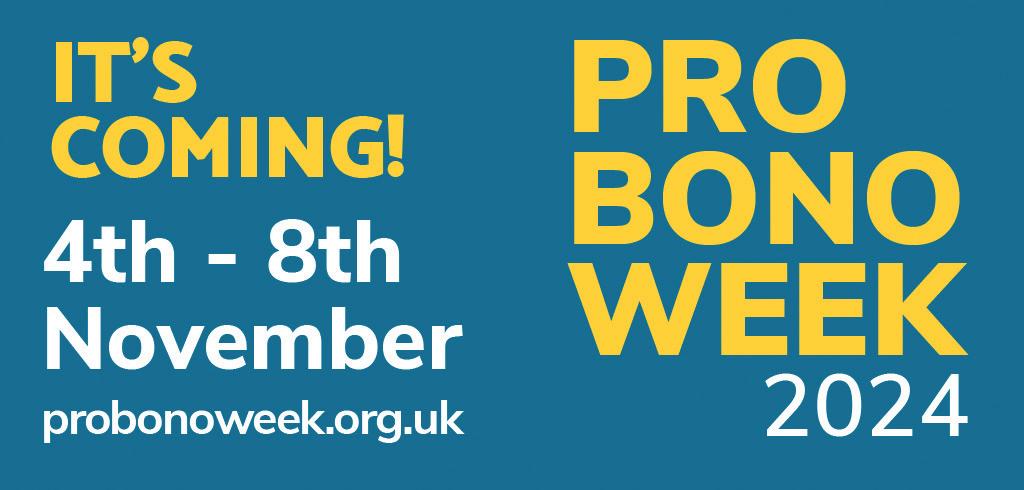
Tell us your plans by emailing info@ probonoweek.org.uk and be featured in our online events calendar. If your event is public, we’ll spread the word on our social media to attract as many attendees as possible.
SAVE THE DATE FOR THE LAUNCH OF PRO BONO WEEK ON MONDAY 4TH NOVEMBER, 6PM - 8PM.
Anyone working in the legal and charity sectors can hear inspiring stories of the power of pro bono and join the networking with drinks and canapés. We’ll be in Edinburgh at the Faculty of Advocates, in London at Norton Rose Fulbright, and online. Register here.
Find other events to attend by browsing our events calendar.
We’ll be populating this over the coming weeks with events across the UK.
Spread the word online - check out our free communications toolkit with 2024 social media graphics, posters and more.
Get baking with the Great Legal Bake and raise money for local advice charities.
FINALLY, I CONCLUDE BY NOT SIMPLY ENCOURAGING YOU TO GET INVOLVED IN PRO BONO WEEK BUT TO THANK YOU FOR VOLUNTEERING ON A PRO BONO BASIS - AT A TIME WHEN THE NEED FOR HELP COULD NOT BE GREATER.

NO INSPECTION CONDITION, NO RESPONSIBILITY, NO PROBLEM?
A few years ago, it was commonplace to have an inspection clause in every unoccupied property insurance policy requiring fortnightly or even weekly inspections of the property, inside and out.
Arranging weekly inspections was either expensive, engaging a local property agent or maintenance firm; or risky, cover relying on a family member arranging inspections and keeping records to evidence them.
More recently, a number of insurers have relaxed this requirement, much to the relief of the probate professional. Thirty day requirements are now commonplace. In fact, policies are also available with no formal inspection condition at all and seem to relieve the executor of any obligation - but to what extent is this really true?
CAN A PROBATE PROFESSIONAL ORGANISE UNOCCUPIED PROPERTY INSURANCE AND SIMPLY PASS THE RESPONSIBILITY TO THE INSURER FOR ANYTHING THAT GOES WRONG?
Unfortunately, it’s not that simple. Although the absence of a fortmal inspection warranty in a policy relieves the policyholder of a rigid ‘diary led’ inspection regime, there are other conditions which, if ignored can just as surely result in a claim being reduced or declined.
OF CARE
Just about every policy carries a written duty of care. Here you will find a written obligation to ‘take all reasonable care to protect the property from, or to limit loss or damage’
If a maintenance issue has been left unresolved for several months and this is found to have contributed to a loss, an insurer would be within their rights to cite the above duty whilst declining to pay for damage.
A typical unoccupied property insurance policy will exclude any loss or damage which pre-dates the policy being in force
If no initial inspection has been carried out, long-standing issues might go un-noticed which may later lead to a severe loss. Your insurer will have little hesitation in evidencing the long-term nature of the cause.
Also, your policy will exclude any loss or damage which has occurred (even in part) through inadequate maintenance or wear and tear
This is a particularly a wide-ranging statement (common to most policies), which can be used to decline or reduce payment in a great variety of situations, unless the insurer is provided with evidence that reasonable care has been taken to ensure the property is maintained in good condition.
Your client’s roof collapses or is torn off during bad weather. You register a claim, confident the insurer will pay for repairs.
No other building in the street was damaged. The loss adjuster investigates further. The garden is overgrown, the wall and some of the roof being covered by thick ivy which had dislodged and loosened gutters and slates, letting in moisture which has caused timbers to rot. The slates, their bond with the ivy stronger than that with the roof, have ended up in the garden. The long-term effects of dampness in the roof timbers is evident.
Many insurers have a written definition of what constitutes storm conditions. Remember, a well-maintained property should be able to withstand all but extreme weather.
In the above example, regular maintenance of the property and grounds may have provided a very different outcome. The claim may have been successful. The damage might never have occurred in the first place. Even with no formal inspection condition,
regular inspections will reduce the likelihood of damage, as well as assist with evidence to support a valid claim.
At every inspection:
■ Maintenance of the garden should be viewed as an investment rather than a cost, protecting the property from damage from vegetation, reducing the risk of burglary, vandalism, damage by animals, and maintaining the property value.
■ Check roof for signs of damage, slipped tiles, excessive moss growth or weeds, cracked cement etc.
■ Check gutters, downpipes and drains are clear. Blockages or growth in gutters can cause damp and water ingress.
■ Blocked drains can cause flooding.
■ Check flat roof areas for signs of damage or weakness. A felt flat roof has a limited lifespan, anything more than 12 years old is likely to be severely weakened and in need of replacement.
■ Check windows, doors and frames for signs of rot or weathering.
■ Check that the stopcock is operating properly, check taps, pipes and radiators for signs of leaks or drips.
■ Check pipes in loft areas. If you have water pipes in the roof space, open the loft hatch by 12 inches to allow warm air to circulate in the loft.
COLIN BICKERS is a Director of Bickers Insurance Services, specialists in unoccupied property insurance for probate and householders in care. This general risk management advice should not be considered exhaustive, nor suitable for every property.
Bickers Insurance Services is a trading name of Bickers Insurance Services Limited. Authorised and regulated by the Financial Conduct Authority. Registered in England and Wales Reg No.08432640.
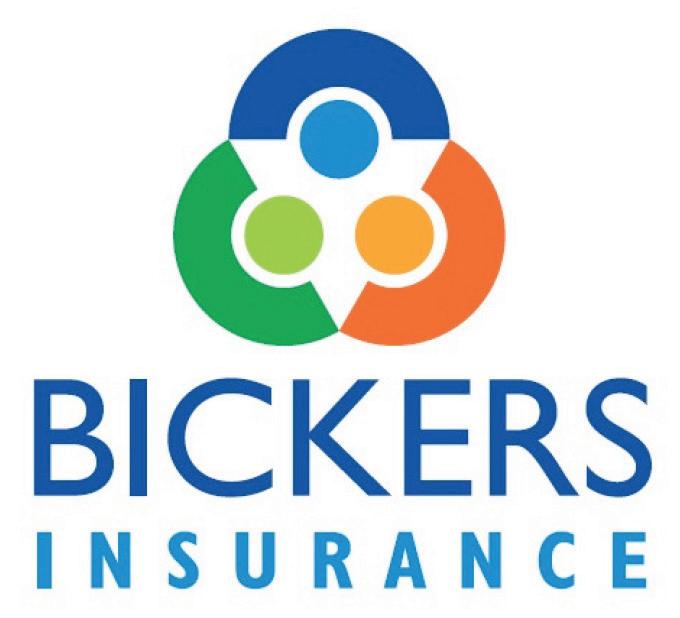
The Law Society of England and Wales has welcomed the election of Andy Slaughter as new chair of the Justice Select Committee.
“Congratulations to Andy Slaughter on being elected as the new Justice Select Committee chair,” said Law Society president Nick Emmerson.
“He brings a wealth of experience to the role at a time when the committee’s work has never been more important given the crisis in our justice system. The ability of the justice system to function is at stake if adequate funding across the system is not forthcoming.
“Key areas of focus for the committee should include the huge backlogs of
cases in our courts which are leaving victims, witnesses and defendants in limbo for years.
“The exodus of essential professionals including solicitors, barristers and judges is another huge problem which needs to be addressed for the system to be stabilised.
“Key to resolving both these issues is adequate resourcing. Attention must also be paid to legal aid, a vital public service that must be maintained and funded to ensure justice is available to all. The robust response to the riots demonstrated the importance of legal aid and well-funded courts and why the professionals who work in our justice system should be valued.
“Rebuilding the justice system will take years of hard work, investment and sensible reform. We look forward to working with the new chair to help progress this vital work.”
About the Law Society
The Law Society is the independent professional body that works globally to support and represent solicitors, promoting the highest professional standards, the public interest and the rule of law.
Press office contact: Nick Mayo | 020 8049 4100


Jonathan Dattani President of the CJLD Solicitor, Ashtons Legal LLP
The Cambridgeshire Junior Lawyers Division is delighted that we are now in September, which we believe is a time of new beginnings.
This is the time of year when trainee solicitors and solicitor apprentices receive their results from the SQE1 which they sat in July. The SQE1 is the first phase of the new “super exam” serving as one of the final hurdles for aspiring solicitors to overcome. Congratulations to all who completed the exam, and best of luck to those now looking at SQE2! We wish everyone all the best, whatever stage in your studies you are at.
September is also the time of year when many aspiring solicitors reach that all-important stage of “qualifying” as a solicitor. Whilst this is in itself the
end of a long, hard-fought journey, it is simultaneously the beginning of an exciting and rewarding career.
As for the CJLD, September is the time of our biggest event - the Annual Charity Ball. This event is hosted with our friends at the CYPG and this year takes place at the amazing Hilton Hotel, Cambridge. Our charities for the 2024 ball are Cambridge City Foodbank and Cambridge Cancer Help Centre.
At the time of writing, the ball is mere days away. And we are so excited for everyone to have a chance to get together, eat, drink, dance to live music and have an amazing time. We look forward to sharing photos from the night and the amount we were able to raise.
Thank you to all our guests and sponsors!
Outside of preparation for the ball, we held our Slingers Darts event at Smokeworks in August. Thank you to all who attended, it was wonderful to catch up with friends and meet new people. For those of you who have now discovered a hidden talent at darts, you are welcome!

TheMegan Simpkins CYPG Committee member, Solicitor Birketts LLP
Cambridge Young Professional Group hosted their annual summer punting event on 22 August 2024.
Young professionals from across Cambridge met at the river and were armed with prosecco and picnic snacks. Attendees were split into groups of six, divided to ensure that there was at least one person per boat who was brave enough to have a go at the realm of the punt! The boats were self-punted, and unsurprisingly the volunteers willing to risk an unintentional swim in the river were limited…
For the most part, no one fell in (there may have been one casualty to the river), and it turns out there are some
aspiring punters amongst our members. Others may need a bit more practice, but hopefully that will be forthcoming if this event makes a return in 2025!
Our next event is the Charity Ball on 21 September 2024, which we organise every year with the Cambridge Junior Lawyers Division committee. This year it is being held at the Hilton in Cambridge. Tickets are no longer available but for those who are attending you can expect a red carpet, popcorn, photobooth and some incredible raffle prizes up for grabs, all to raise money for The Cambridge Cancer Help Centre and The Cambridge City Foodbank. We are also hosting an after party at Revs in Cambridge, for those who aren’t quite ready to call it a night at midnight…

Details of our upcoming October event will be shared with our mailing list, our LinkedIn and our Instagram pages shortly. To be added to our mailing list and be kept up to date with our upcoming events, please contact cambsjld@gmail.com or like and follow Cambridgeshire Junior Lawyers Division on our social media pages!
As always, a massive thank you to our amazing sponsor, Errington Legal Recruitment Limited for their support. We strongly encourage those getting into law, due to qualify or those looking for a change of role to reach out to them at www.erringtonlegal.co.uk/.
There is no Thirsty Thursdays this month due to the ball, but details of our October Thirsty Thursdays will follow. Keep your eyes peeled also for details of our October event which we hope to release towards the end of the month. We are finalising arrangements but it’s looking like a Friday night bottomless dinner (which doesn’t have the same ring as bottomless brunch, but unfortunately bottomless prosecco isn’t feasible at 11am on a work day).

We are incredibly grateful to Cambridgeshire Law Society for choosing Wintercomfort as their 2024 President’s Nominated Charity.
Wintercomfort supports people with experience of homelessness or who are at risk of homelessness by offering essential welfare services and social, learning and work opportunities. We also provide an outreach service at local foodbanks in Cambridge, identifying people in need of support who may not attend the day service at Wintercomfort. We are open every day of the year and encourage and empower the people we support to overcome disadvantage and to make positive, long-term changes to improve their lives.
In April, James Holden, Fundraising Manager at Wintercomfort was invited to attend the Gala Dinner and Legal Excellence Awards, held at the beautiful King’s College Cambridge. The fundraising gala, including an incredible evening raffle raised a fantastic £5,000 to support our work. This is such a huge boost towards our welfare service, supporting those experiencing homelessness in the city.
In 2023/24 Wintercomfort supported 707 individuals in crisis. This is a staggering 55% increase in two years and sadly demand continues to rise. This year, (1st January 2024 to 1st August 2024), we have already supported 506 individuals, many of these are new faces, accessing our support for the first time.
To continue to deliver our vital services we need to raise over £1m each year. Charity of the Year partnerships and corporate and community fundraising opportunities are hugely important to us and help us to continue to provide life-changing services for people who need us, people like Graham.
‘Graham had a successful career as a builder and lived with his partner and family. He suffered a series of personal tragedies including the loss of a child, the sudden death of his sister to suicide, and a back injury that left him unable to work. These devastating events resulted in a catastrophic mental breakdown.
Within the depths of his mental illness, Graham withdrew from family and friends, reluctant to share the extent of his condition his relationship broke down and he had to leave his home. He began living in and out of temporary accommodation and was given medication to help manage his mental health, but the medication made him drowsy, and he became hesitant to take it.

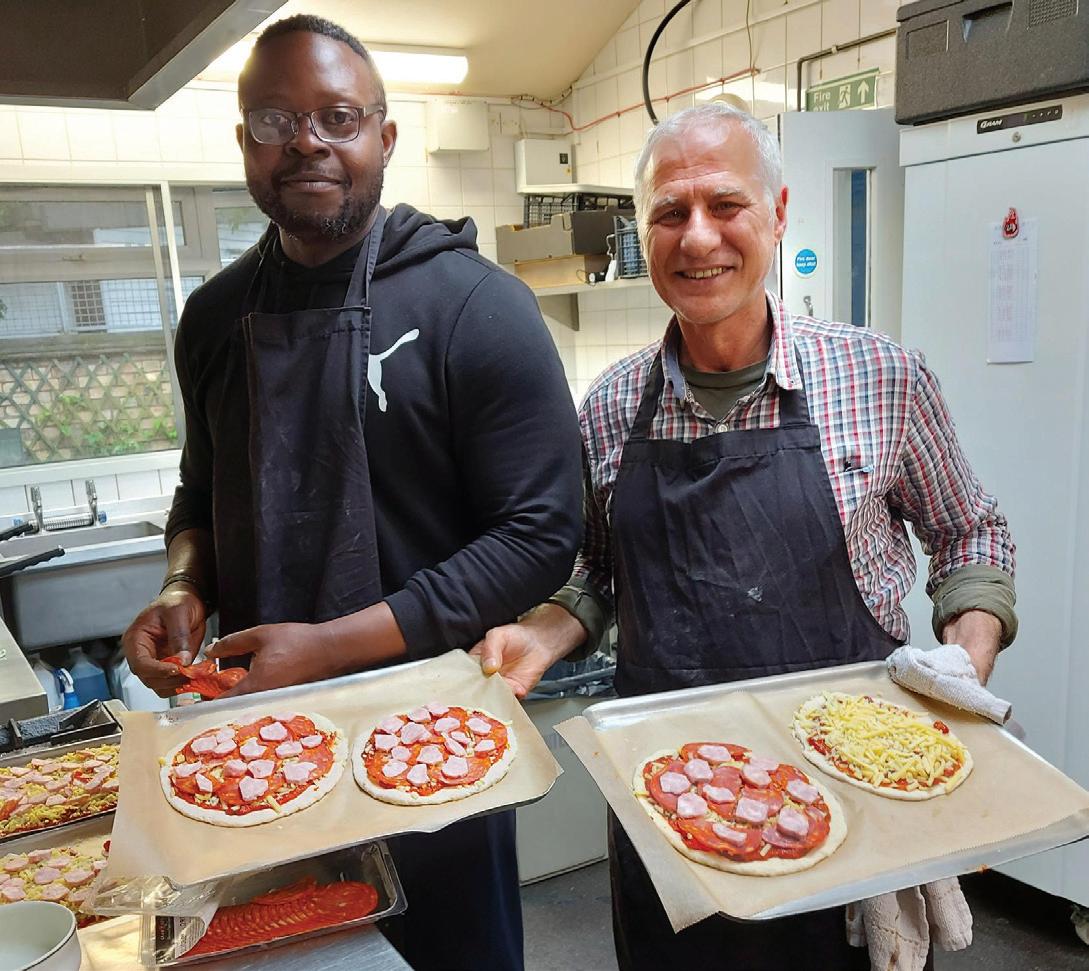
Wintercomfort has supported Graham with grant funding for basic furniture and white goods to set up home.
Graham felt extremely vulnerable living in an unpredictable environment, he felt that he could not trust himself to be able to stay awake and ‘keep guard’ of his personal safety and his belongings. Consequently, he stopped his medication completely and his mental and physical health deteriorated rapidly. Graham found himself homeless.
When Graham came to Wintercomfort he was very mentally unwell and extremely hostile.
Wintercomfort greeted Graham with patience, understanding and compassion. He was placed in temporary accommodation as a stepping-stone towards a more permanent solution and given help to manage his mental health. Throughout this time, Graham’s key-worker Alex would check in with him daily to provide much needed emotional support.
“Alex and the whole Wintercomfort team have really been there for me. I knew that I wasn’t alone.”
In August 2023, Graham was given a permanent housing solution. He is now living in his own flat which has a balcony where he is beginning to grow herbs and pot plants.
Graham started to attend weekly face-to-face counselling sessions at Wintercomfort, something he found challenging but immensely beneficial.
After years of estrangement, he has reconnected with his daughter, and they are now in regular contact.
“I’ve missed so much of my kids’ lives through mental illness and I hope that one day they’ll understand why I couldn’t be there for them. I’m going to be there from now on.
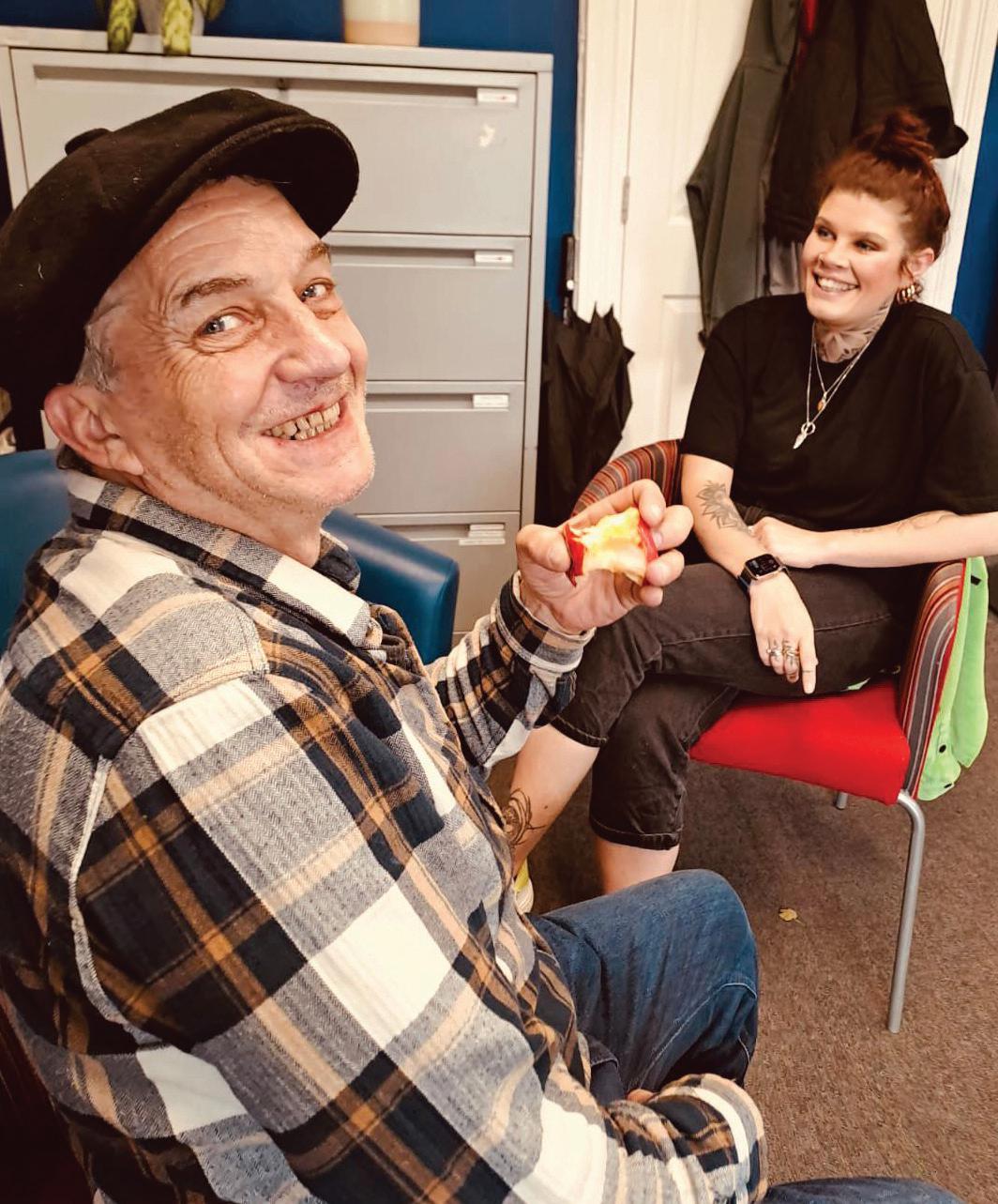

Buying a house can be a long and confusing process for many homebuyers. It can be hard for them to understand and interpret search results, but making sure your client has the full picture of the house they are buying is so important. Geodesys aims to help demystify and speed up the process for both you and your client. The CON29DW is the only drainage and water report on the market that gives your clients all the information they need and is approved by the Law Society. It is designed to provide information on the public sewage and water networks and how they are connected to a specific address.
So, what makes the CON29DW so unique?
Reliability:
You can trust that the data your client receives in a CON29DW is reliable, accurate and up to date. Geodesys gets the information in their report for customers in the Anglian Water region, straight from Anglian Water. Although alternative drainage and water reports are available, known as regulated or personal drainage and water reports, these do not use water company data and data quality may not be as good.
Efficiency:
Time is everything in the conveyancing industry. Geodesys understands that the time it takes to receive property information can cause delays and may even result in a transaction falling through. That’s why over 90% of their residential reports are delivered within 3 days of ordering, with many being delivered the same day.
Expert Support:
The Geodesys team of expert Customer Service Advisors are dedicated to providing support and answering any questions you, or your client, may have at every step of the way. Your confidence in property decisions is their priority.
The CON29DW also comes with robust terms and conditions to support conveyancers and their clients.
The terms and conditions include £10m liability cover and a commitment that in the unlikely event something isn’t right, we take responsibility for the information provided.
Whether you are acting for a residential or commercial property there is a CON29DW to help.
CON29DW Residential
l Answers to all 23 Law Society copyrighted questions on drainage and water.
l Includes two maps to illustrate the position of pipes.
l Includes five pages of homeowner information.
l Easy to navigate with interactive features.
CON29DW Commercial
l Comprises of 27 standard questions aligning with the CON29DW residential report.
l Is specifically designed for those purchasing or leasing land or commercial property and covers land or buildings used or proposed to be used for commercial activities.
l Enhanced T&Cs and Indemnity.
If you’re ready for the full picture, head over to the Geodesys website to get in touch or call on 0800 085 8050.
Their team is here to answer any questions you may have.


The judge found that it was entirely artificial to think that sharing a platform speaking at a seminar during (in the case of one expert) or before (in the case of the other) giving evidence would have any effect or impact on the evidence of two expert witnesses in urogynaecology.
Learning points for instructing parties:
l It is best to disclose any potential conflicts of interest mentioned by the experts you instruct, to the court and the other parties, even if they appear minor or tangential.
l You should remind the expert witnesses you instruct of their duties and obligations and make a point of selecting expert witnesses who can demonstrate that they have appropriate training in those duties and obligations.
Learning points for experts:
l Engaging in normal professional activities, such as sharing a platform speaking at a conference or seminar with a colleague acting in the same case, should not by itself cause a conflict.
l Expert witnesses in smaller fields will naturally be aware of most, if not all, other experts and professionals working in their field, and this should not, of itself, cause a conflict.
l Nevertheless, you should disclose any such circumstances to your instructing party.
The claimant alleged that she underwent a TVT-A tape implantation procedure that would otherwise have
been avoided because of breaches of duty by the first defendant. The claimant and first defendant alleged that a subsequent mesh excision surgery and colpsuspension performed by the second defendant were a breach of duty.
Three expert urogynaecologists provided evidence: Dr Sokolova, Mr Robinson and Mr Toozs-Hobson. The integrity of Mr Toozs-Hobon and (to a lesser extent) Mr Robinson as independent experts was attacked during cross-examination which sought to suggest that they had personal, professional and/or financial interest in the outcome of the trial and/or had a financial interest in the supply of vaginal mesh products.
During the course of the trial Mr Toozs-Hobon and Mr Robinson shared a platform speaking at a seminar for urogynaecologists which had been planned before the trial. Due to changes in the trial timetable, Mr Robinson was giving evidence over the weekend of the seminar, while Mr Toozs-Hobson was yet to give evidence. Both experts had informed their legal team of this professional commitment but had not informed the court or the second defendant or her lawyers.
The judge noted that it would have been preferable for this commitment to have been volunteered to the court and the second defendant. However, had it been disclosed, the judge would have done no more than to the remind the experts not to discuss the case between themselves, and Mr Robinson (who was in the process of giving evidence) that
he was prohibited from discussing his evidence with any other person. The judge was able to ascertain that this was in fact how the experts acted. The judge went on to note that the subspecialism of urogynaecology was a small one. Mr Robinson and Mr TooszHobson already knew each other and the defendants before the case. She noted that "[i]t is entirely artificial to think that the organisation and attendance at the weekend seminar would have any effect or impact on [the experts'] evidence. Mr Robinson and Mr Toozs-Hobson had each already provided written reports and then a Joint Statement addressing a detailed agreed agenda. The quality of the substance of their opinion could be and was properly explored through the trial process."
The judge rejected the suggestion that the experts had approached the task of giving evidence other than in accordance with their duties to the court. She also rejected any suggestion that either had given evidence that had been improperly influenced by any hidden agenda of protecting personal, professional, or financial interests or had a stake in any particular outcomes in the litigation.
PHONE: 020 3880 0064
WEB: www.ewi.org.uk
EMAIL: simon.berney-edwards@ewi.org.uk
ADDRESS: PO Box 797, Redhill, RH1 9JS

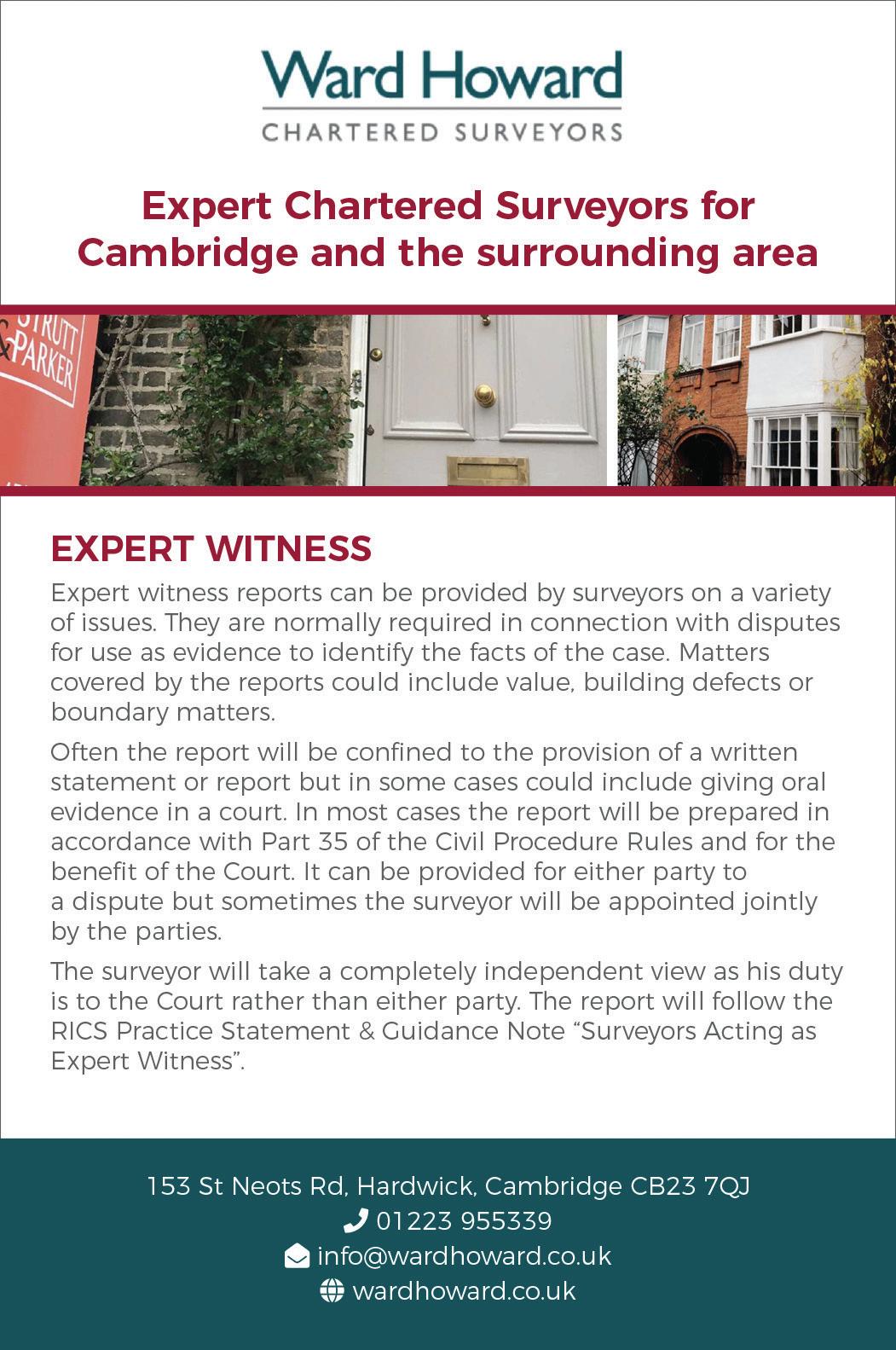

• Acute coronary syndrome
• Aortic Dissection
• Appendicitis
• Cauda Equina
• Communication breakdown
• CoVid
• Fractures
• Ingested foreign body
• Major Trauma

Trained as a mediator and coach, Dr. Rush rigorously explores the case scenario and seeks to identify and articulate the core issues to offer clarity and objective reasoning in his reports. Over the last five years Dr Rush has prepared CPR35 compliant reports for the claimant, defence and the Coroner’s Court.
• Overdose
Dr Rush has extensive experience as a consultant in Emergency Medicine in the United Kingdom, New Zealand, and Australia. He brings a deep understanding of the speciality to all cases he analyses, drawing on his expertise in teaching, quality improvement, and safety to provide a holistic assessment of individual and system performance in each episode of patient care.


• Paediatric Sepsis
• Procedural complications
• Sickle-cell disease
• Soft tissue injuries
• Stroke
• Tendon injuries




In the last five years, Dr Rush has completed numerous expert reports on topics including the following areas:


• Vascular access complications
• Wound management










DR WILLIAM RUSH
MBCHB, FACEM, FRCEM, DIPPAEDS
Email: info@leerushmedical.co.uk
Phone: 07378 298147
Occupation: Consultant in Emergency Medicine

As all Deputies and Court of Protection specialists will know, applying for a Statutory Will can be a complicated and time consuming matter. As part of the duty of care, and requirements for making a Statutory Will, it is necessary to hold a copy of the person’s existing Will, a draft of the proposed Will, details of their family, assets and income, as well as medical evidence of their incapacity in order to provide these to the court, together with any other evidence the court requires.
Anyone who would be potentially affected by the application (perhaps a beneficiary who would lose out, for example) will be a party to the court proceedings. Finders International specialises in researching P's next of kin, providing a verified family tree and a full report of the required findings to support your Application to Court.
Here are some of the ways in which a probate genealogist can help:
1. Verifying Family Tree Information: We can conduct thorough research to trace and identify all of P’s next of kin according to intestacy rules. We can do so with little or no contact with the family, at the authority of the Deputy, and ensure that our research is backed by documentary evidence.
The court or the deputy may receive information about P’s family from various sources, including family members. This information can often be inaccurate; therefore, we can verify the accuracy of any information already held, ensuring that the family tree is comprehensive and reliable.
2. Resolving Complex Family Scenarios:
In cases where the family structure is complex or unconventional, a probate genealogist can provide expertise in unravelling intricate family scenarios. This includes stepsiblings, half-siblings, or other unique family relationships. With modern families spread across the globe our international expertise can assist in even the most complicated of family make ups, and wherever people may live.
3. Ensuring you are aware of P’s existing Will & financial assets Ensuring you know of any Will P may
have made in the past is crucial to this process. Finders can assist by conducting a comprehensive Will Search to identify any Will that may have been made before P’s affairs were managed under Deputyship Order. Additionally, a full missing asset search can also be conducted for P, ensuring that you are aware of the full financial picture.
4. Providing Evidence for the Court: The findings of a probate genealogist can be presented as evidence to the Court of Protection. This documentation helps validate the accuracy of the family tree and ensures the correct family members are notified of the process.
A question that we are often asked is, ‘How do you do it?’ Many who have researched their own family tree will know that birth, marriage, and death records are essential in confirming findings. At Finders International, we also have in-house databases, local representatives, and a network of international researchers to assist with our research. Each case comes with its challenges, including children born out of wedlock, overseas research and common surnames. Our team work on cases with these elements on a daily basis and carry out research for Court of Protection teams all over the country, so have the experience to overcome these research hurdles.
At the point of our instruction, the only information held was that P had a deceased partner and one living cousin.
Our research first confirmed that P had no children and was an only child.
Extensive research using all available genealogical resources confirmed that P had no living Paternal family. However, we confirmed that P’s maternal family was larger than expected.
During the course of our research, we identified 6 maternal aunts and uncles who left descendants, identifying a number of living cousins.
As part of our verification process, we obtained birth, marriage and death certificates and identified current addresses for all P’s next of kin. This information was provided to the Deputy in an easily digestible family tree and report, with appropriate supporting documentation. In this case, at the Deputy’s request, no contact was made with the family before our report was submitted.
Our involvement in this case was key, as we identified three more family members in addition to the cousin previously known. This full picture enabled the Deputy to proceed with the Statutory Will Application and notify all the correct next of kin.
Finders International can assist predeputyship application if the court requires you to contact family, friends or neighbours of P. We can also assist with Statutory Will Application research, Missing Will and Assets searches, Administrator searches and Unoccupied Property Insurance.
If you have a case like the above or have any questions regarding our services, contact us today at quotes@findersinternational.co.uk, call 0800 085 8796 or visit our website www.findersinternational.co.uk.

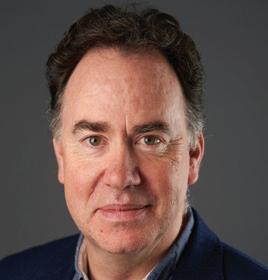
In this article, Dr Giles Proctor, CEO of The College of Legal Practice, explains why he believes Graduate Solicitor Apprenticeship (GSA) Programmes can give both employers and individuals the best possible opportunities to help employees qualify via the SQE route.
Many people have heard of 6-year solicitor apprenticeships, well the GSA is a graduate entry solicitor apprenticeship programme that trains apprentices to pass the SQE1 and SQE2 whilst also producing the workplace evidence portfolio that meets Qualifying Work Experience (QWE) requirements. Solicitor apprenticeship programmes end with the SQE2 assessment and provide a qualification route to becoming a solicitor. There are programmes available for law and nonlaw graduates.
Here at The College of Legal Practice, we are starting to see firms include graduate solicitor apprenticeship programmes within their early careers training portfolios, and guess what? We think that these apprentices have a very strong chance of passing the SQE first time around.
We see the GSA as a unique collaboration between a higher education provider and a legal services organisation. We work closely with our client firms on their programmes and we are finding that there are some key differences with this programme and SQE preparation courses that greatly benefit both the individuals and the employer.
As you might be aware, large employers can draw down 95% of the funding for the GSA through the Apprenticeship Levy, making this an efficient and sustainable way to bring in future solicitors. This funding channel is unique and can be put towards the full apprenticeship programme costs that includes training, coaching and SQE1 & 2 assessment costs, including one re-sit for SQE1.
If you are a smaller employer, good news, you can receive up to 100%
of your apprenticeship programme costs from the government, if you are ineligible to pay the Levy.
We are seeing in our student cohort, that those are preparing for longer for the SQE are getting better results. It is no surprise that taking a 40-week course generates better outcomes than studying over 13 weeks.
In the GSA programme, the candidates have a structured learning pathway towards taking the SQE exams. Whilst they are training, in addition to personal supervision, they receive discrete coaching to support their progression. This pathway works brilliantly to ensure aspiring lawyers gain all the necessary preparation, skills and qualifications to become a fully qualified solicitor. In addition, unlike SQE preparation courses, engagement with the programme is mandatory for apprentices, monitored by Ofsted.
The GSA, unlike the 6-year programme, is for graduates only who have already spent time in the higher education system and are exploring their career ambitions. When you run your GSA application process, it is set up much like a training contract process, with rigorous interviews and clear expectations for employment, training and progression. Alongside being a stable point in a person’s career journey, the GSA has the benefit of extensive support to limit the chance of apprentices dropping out due to personal challenges. The 1-2-1 coaching provided allows the needs of students to be addressed at the earliest stage possible and the prerequisite support put in place swiftly.
You can help achieve your firm’s social mobility objectives through the introduction of Graduate Solicitor Apprenticeships. For many students, who are the first in their family to get a degree, let alone enter this rigorous profession, we hope that having a clear and funded structure to progress will
be the difference between pursuing their goals and not. This has a knockon effect for employers, leading to increased social mobility, a more diverse workforce and eventually a pool of future solicitors that better represent the society they serve. The GSA also offers a fantastic opportunity for internal progression, with paralegals and legal executives using the GSA as a structured pathway to qualification.
Traditional apprenticeship schemes take apprentices out of the workplace for a day a week, impacting on client delivery. With The College of Legal Practice’s programmes, apprentices can study virtually and flexibly, allowing them to focus on their work responsibilities and demands alongside their study. This approach also avoids the need for travel time and costs and give apprentices options for study outside core working hours if needed.
So, at the College, we believe the Graduate Solicitor Apprenticeship is highly valuable for employers and offers the structure to help apprentices pass the SQE. It provides a robust launch pad to fully integrate apprentices into your workplace and ensures that they have individual support and coaching to become your next valued cohort of NQ solicitors.
You can find out more about the College’s Graduate Solicitor Apprenticeship programme here, and you are welcome to get in touch if you would like any more information.
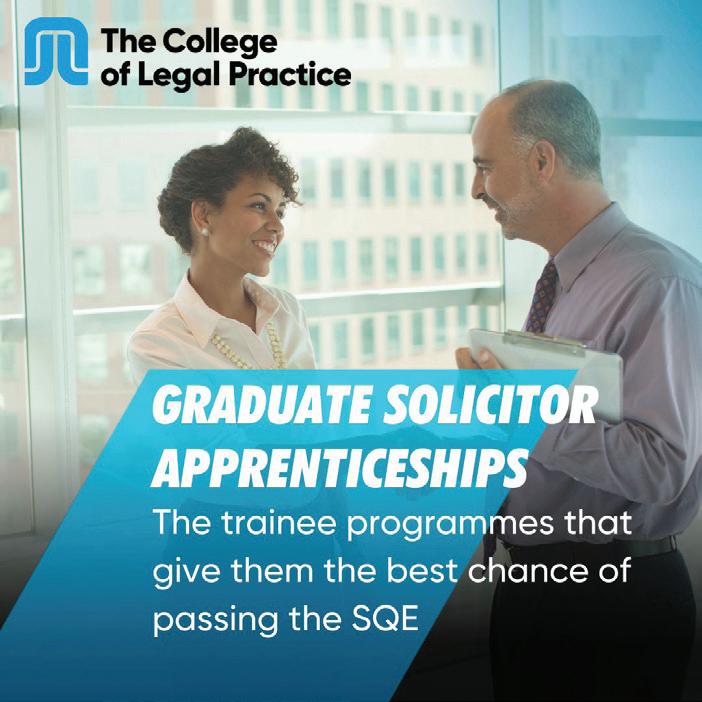
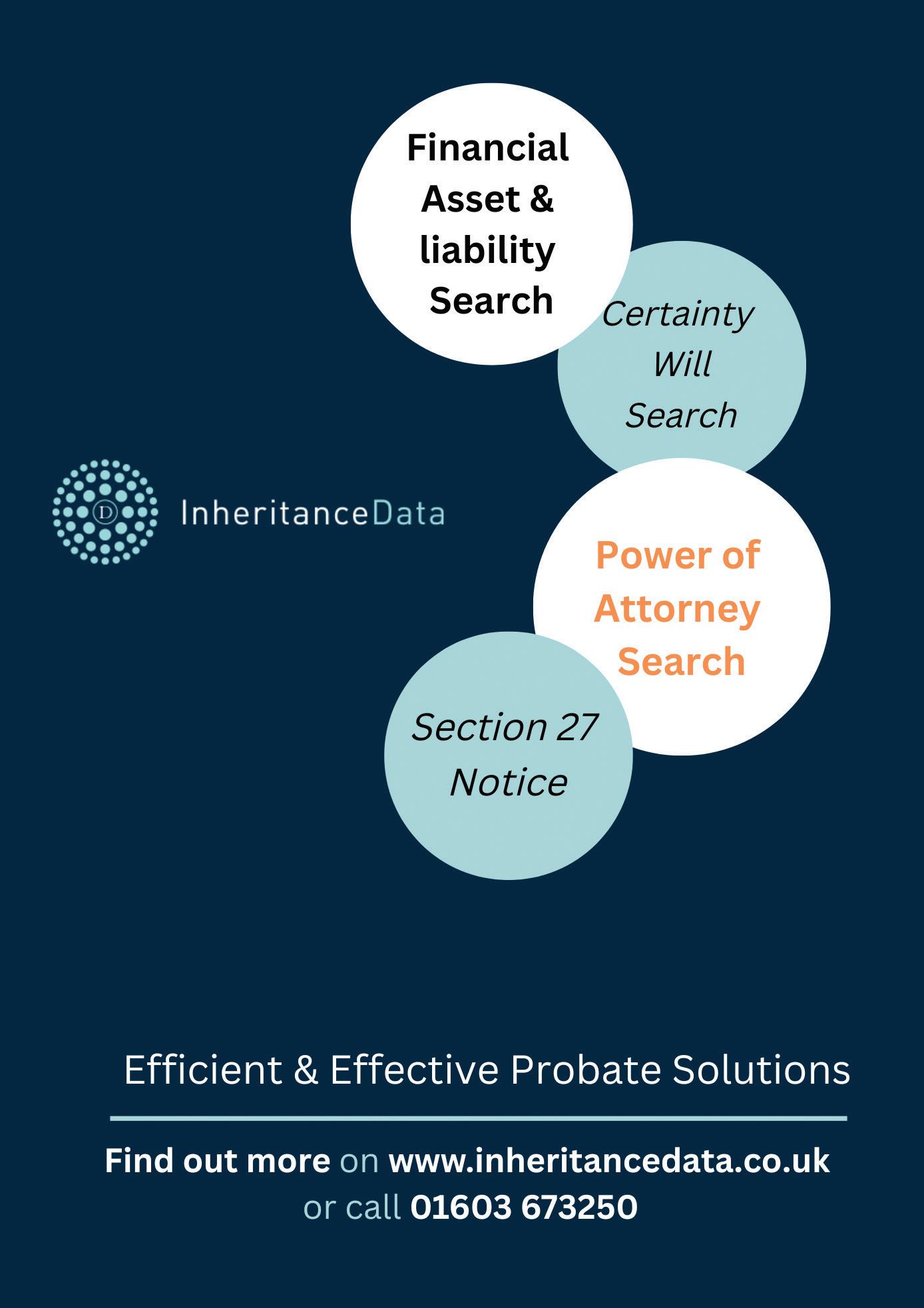

Although FHM Forensic Accounting was only founded in April 2024, our expertFiona Hotston Moore - has over 20 years’ experience as a forensic accountant and an accredited expert witness. Our mission is to help clients resolve financial disputes and problems in an efficient and cost-effective way. Our specialist services include:
• Business Valuations
• Divorce and matrimonial matters
• Shareholder and commercial disputes
• Private client and family disputes
• Professional negligence claims
• Fraud investigations
❚ ABOUT FIONA HOTSTON MOORE AND THE TEAM
Fiona qualified as a Chartered Accountant in 1990, is a Fellow of the Institute of Chartered Accountants in England and Wales and also a Chartered Tax Adviser. She is a member of the Academy of Experts trained as a Single Joint Expert and an Accredited Counter Fraud Specialist. She is an accredited Expert Member of the British Valuation Institute (BVI UK).
Fiona has considerable experience in business valuation, commercial and shareholder disputes, matrimonial and family matters and professional negligence matters. Fiona has been instructed as an expert in approximately 400 cases in her career to date. She is often instructed as a Single Joint Expert. Fiona has given evidence on many occasions in the Family Court, High Court, International Arbitration, Tax Tribunal and has assisted in mediation.
In addition to acting as Single Joint Expert, Fiona acts as Party Expert, Shadow Adviser and in Expert Determinations.
Fiona is passionate about forensic accounting and working with fellow professionals to help clients resolve problems and move forward with their lives. Outside of her professional life, Fiona enjoys travel and has visited 58 countries. With the benefits of hybrid working she intends to add a few more countries to the list over the next few years.
Fiona is delighted that Tom has chosen to join FHM and, as an Assistant Director, will play a significant role in the continued development of the practice. Fiona and Tom have worked together for several years and many of our clients will already have worked with Tom.
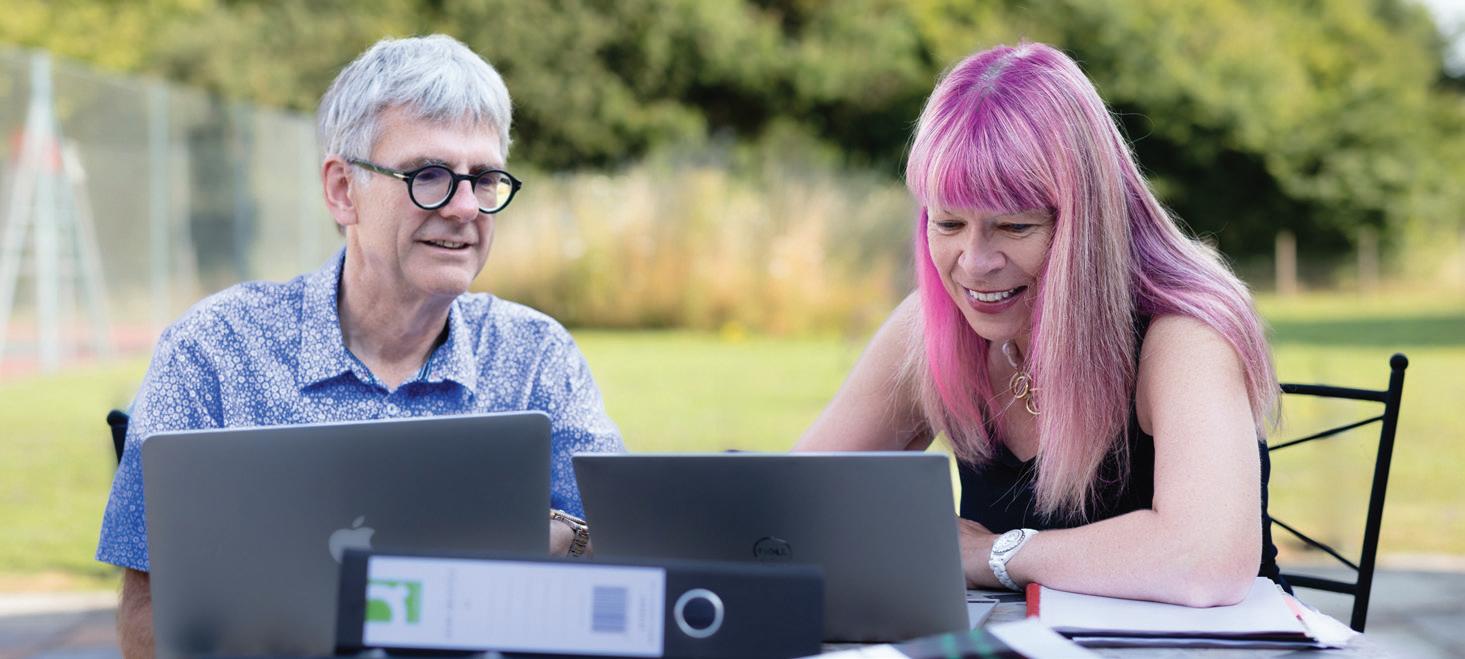
Tom is a qualified accountant with approximately ten years’ experience in advising clients. In the last four years Tom has focused on forensic accounting and expert witness assignments and has worked with Fiona on a variety of cases including business valuations, matrimonial cases, shareholder disputes and professional negligence matters.
Graham founded FHM with Fiona and looks after all the back-office facilities including technology, website, compliance and internal accounting to ensure we provide the quality of service that is important to us. Graham has assisted Fiona for many years on forensic assignments and is passionate about the quality of the product and is able to assist on complex financial analysis.
Outside of FHM, Graham has a passion for photography, classic cars and live music.
Aside from Fiona, Tom and Graham, we have formal engagements with a number of specialists and work alongside regional accounting practices as appropriate.
We offer our services across the UK and occasionally beyond and we intend to develop the practice further with additional recruitment of individuals with a similar mindset in the near future.
We have a reputation for our specialist valuation services. We value businesses of all shapes and sizes. The valuation may be required for the purposes of a financial dispute or for commercial reasons. Our valuation services include:
• Company valuation
• Minority share valuation
• Partnership valuation
• Sole trader and one-man companies
• Employee share valuation
• Divorce business valuations
• Unfair prejudice
• Employee and director disputes
❚
Whatever the nature and size of the case, we ensure that our opinions are clear, relevant, credible, informed and costproportionate.
We can provide a preliminary fee quote based on minimum information and we aim to respond within two working days to every enquiry.
On smaller cases, including sole traders and partnerships, we aim to provide an efficient and cost-effective service. On larger cases we have expertise in a breadth of sectors and experience in international groups, complex share structures and quasi-partnerships. We can assist with:
• Share and business valuations
• Liquidity reviews
• Capital extraction
• Taxation considerations
• Capital gains tax calculations
• Income assessment
• Shadow adviser reports
• Form E review
• Investigations
❚
We value our strong relationship with our instructing law firms in East Anglia and beyond and we appreciate your support since we set up FHM Forensic Accounting. We look forward to working with instructing solicitors and their clients to continue to help resolve financial challenges.
CONTACT DETAILS fiona@fhmforensic.co.uk +44 (0)7770 642491 www.fhmforensic.co.uk

A game changing new app launched by tech developer Professional Office is set to radically change the way regulated businesses verify their client identity and improve their KYC process.
As part of the company’s SanctionsSearch.com© suite of tools, users can now VERIFY the identity of people from anywhere in the world holding a valid biometric passport simply by using the smart phone app, ValidateMe.
ValidateMe© takes customers through a comprehensive, sign posted journey of collecting documents, liveness facial recognition and the current ‘live’ status of the documents presented.
And it is all done via the applicant’s smart phone.
The technology - cleverly - unlocks the NFC chip in the passport to confirm the individual is actually who they say they are. Critically, all data is then cross verified to ensure that all the information is authentic.
“Our new product is set to radically transform the way regulated businesses and associated legal and professional services firms do business,” said MD Chris Clare.
“There’s a host of software products out there that claim to be market leaders in the verification process, by using ‘liveness’ and facial recognition to match people with images on documents.
“But while none are inherently bad, most are not 100 per cent perfect,” added Clare.
“The problem is, they all rely on the validity of the document, such as the included data, and - amongst other things - the photo of the person on a passport.
“If that photo or document is compromised, then any validation that comes from it is inherently flawed. And then you have a big problem,” said Clare.
“Here at Professional Office, we have focused our energies over the last four
years and developed our NFC (Near Field Communication) PCV (Passport Chip Verification) tool
“We believe it is the most state of the art ID verification tool available.”
So, how does it work?

“The NFC chip in a passport contains an encrypted copy of all the data printed on it, including the photo of the client, which should match the one visible on the document.
“All this data is digitally encrypted and signed with a verifiable Government - issued secure certificate.

“That government-issued encryption certificate held on the chip is verified to ensure that the data has not been tampered with, providing one of the most robust ID verifications on the market at the moment.

“All data collected by ValidateMe© is fully encrypted on the phone ensuring it is not accessible to anyone. Once it has been used it is permanently removed from the device.” explained Clare.
www.professionaloffice.co.uk



28 August 2024: A new report from Remember A Charity launches today, exploring the opportunity for wealth advisers to play a more active role in helping clients achieve their philanthropic goals through a charitable legacy. Looking at the benefits of engaging clients in meaningful discussions around charitable bequests, the report also highlights the potential for working more closely with charities to co-create philanthropic journeys for clients.
Understanding the role of wealth advisers in growing legacy giving was developed in partnership with Boon Philanthropy Consulting and with support from Philanthropy Impact. It draws from research gathered from interviews and focus groups with around 40 advisers, including wealth managers, private bankers, tax consultants, philanthropy consultants, and solicitors, it also incorporates insights from fundraisers, featuring case studies of high value legacy gifts.
The report highlights the importance of the high value legacy giving market for charities across the UK, and the scope for growth. While fewer than 1% of charitable estates in recent years have included gifts of over £500,000, data from Smee & Ford indicates that these donations generate more than one quarter of the sector’s legacy income (26%)*. Based on the current UK legacy market value, this equates to around £1 billion annually, funding vital services for beneficiaries across the country.**
Commenting on the potential for growth, Lucinda Frostick, Director of Remember A Charity, said:
"Even a small increase in high value legacy gifts could significantly enhance UK charities' long-term funding, while enabling high net worth individuals to achieve their philanthropic goals and vision. Wealth advisers are uniquely positioned to accelerate this growth. By working collaboratively, charities and wealth advisers could unlock invaluable philanthropic potential."
Sianne Haldane, founder of Boon Philanthropy Consulting, said:
“The opportunities that exist around growing high value legacy giving are really exciting. They provide not only transformational possibilities for charities that receive them, but central to these gifts are enhanced relationships with the donors who leave these gifts. For advisers, talking about values and legacy with clients gives them a deeper understanding of their clients’ overall goals... it truly is a win win win for all.”
While private client solicitors are often well versed with charitable legacies, the report emphasises the opportunity for a broader range of wealth advisers to play a more active role. It highlights five key findings:
1. The power of values-led conversations: Clients are increasingly seeking advice that aligns with their values and ethical considerations as well as their monetary goals. Wealth advisers can deepen relationships and trust by incorporating discussions about charitable intentions with their clients.
2. Seeding the idea of charitable legacies: Advisers are well-placed to initiate conversations about legacy gifts during key life stages, offering clients the opportunity to align their estate plans with philanthropic aims while exploring potential fiscal benefits.
3. An appetite for specialist knowledge: Advisers express a need for more knowledge and support in raising legacy conversations with their clients. They want to better understand how legacy gifts can be structured and how they can help clients realise their own charitable goals.
4. Legacy giving can play a key role in the philanthropic journey: The decision to leave a charitable legacy can be a catalyst that inspires future giving. Advisers recognise that discussing the causes that matter most to clients can strengthen the adviser-client relationship, as well as help clients approach subsequent philanthropic and investment decisions.
5. The need for a more holistic and collaborative approach: Impact is a key driver for high net worth individuals. They expect to have choice and agency, and be well stewarded - by advisers and charities alike. There is scope for charities to work more collaboratively with advisers, supporting them in co-creating philanthropic journeys and experiences.
One adviser commented:
“When a client feels passionately about giving something back, it is very humbling to be entrusted with the responsibility to ensure their legacy makes a positive difference to causes that are close to their hearts.”
John Pepin, CEO of Philanthropy Impact, said:
“At Philanthropy Impact, we believe that wealth advisers are at the forefront of a transformative movement in values-based impact investing and philanthropic giving, including in legacy giving. Their expert guidance can empower clients to make impactful decisions that resonate with their deepest values and aspirations.
“By fostering a more informed and integrated approach, we can ensure that high value legacies contribute significantly to societal advancement and create lasting change.”
The report is available to download from Remember A Charity’s website. Additional web-based content and assets have been developed to inspire, educate and equip wealth advisers for discussing legacy giving with their clients.
Rachel Steeden, Head of Legal at Stewardship, comments:
“The report is packed with useful insights to encourage mutually beneficial conversations between advisers, clients and charities. It covers the wide range of legacy structures available, including the highly practical and flexible Donor Advised Fund model.”
* Source: Smee & Ford, analysis of charitable estates 2016-2022
** Thanks to charitable gifts in Wills, 6 in 10 lifeboat launches are made possible through the RNLI, thousands of people receive end-of-life care through Marie Curie and an increasing number of locally-based charities can deliver vital services in the community.

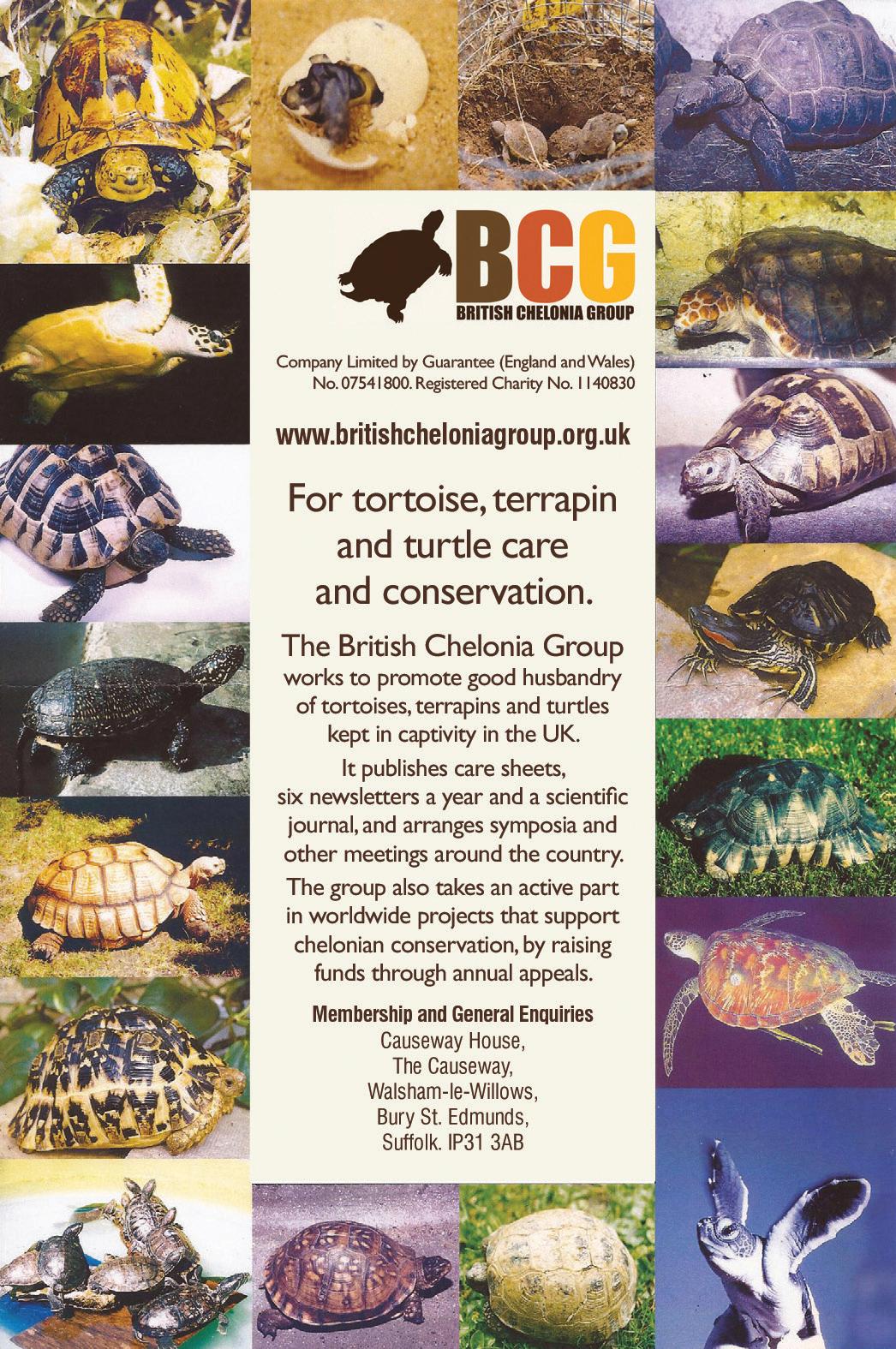
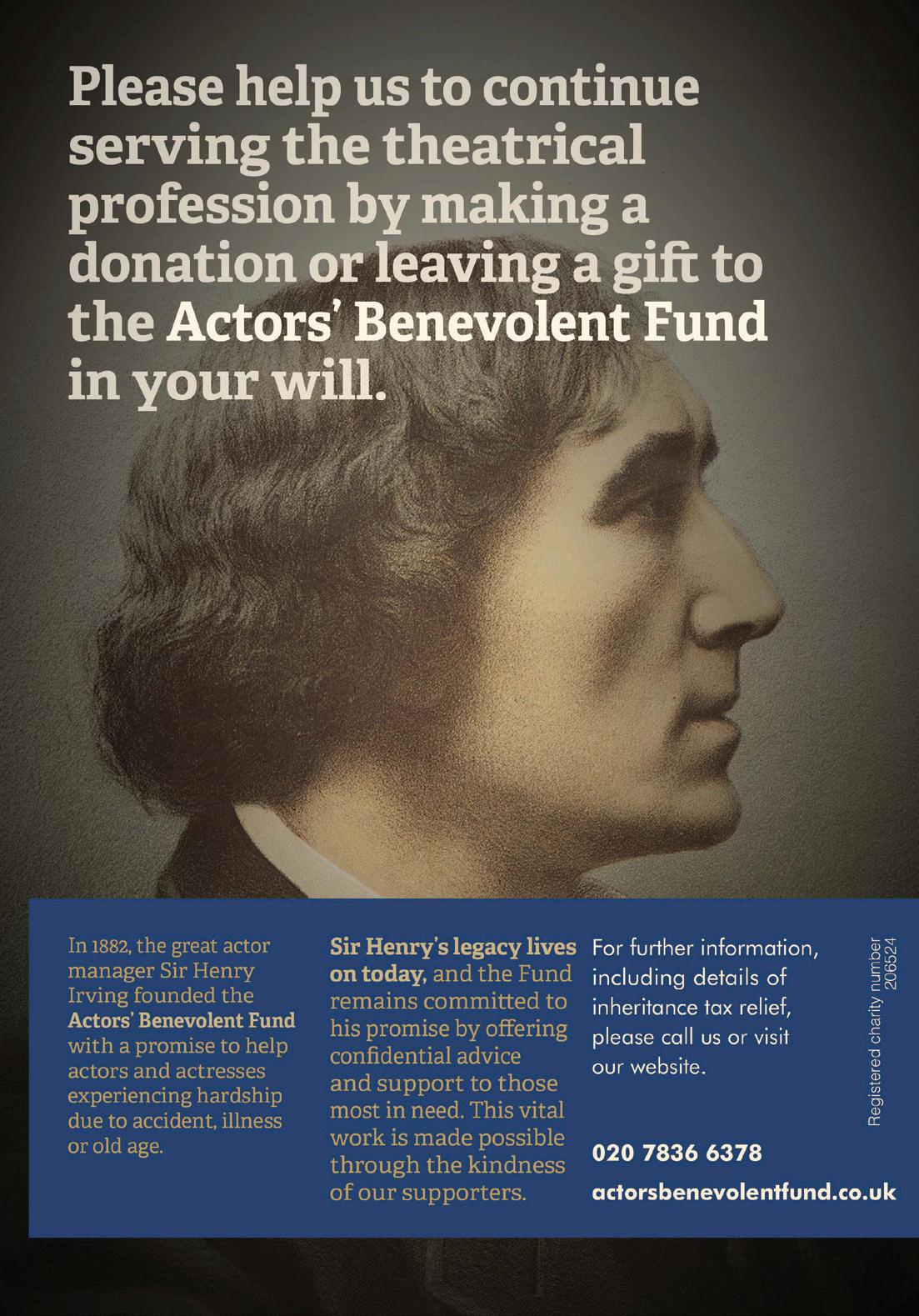


Combining the convenience of road and rail links with the safety and tranquillity of a 11-acre green oasis campus in Peterborough, The Peterborough School presents a 'Through School'; from the recently expanded Nursery to the renovated Reception classroom, through the Prep School, Senior School, and Sixth Form, students can progress seamlessly. Experience the calm, welcoming, and warm atmosphere of The Peterborough School.
We take pride in being a close-knit school, where we understand each child's personality, needs, strengths, weaknesses, and aspirations. Our core mission is to provide tailored education that offers the best opportunities for success, emphasising a nurturing environment resulting in outstanding achievement; we unlock the potential of each and every child.
We provide the elements each individual child needs to be happy and achieve. Our dedicated staff are committed, driven, adaptable, and experts in their fields. They recognise student’s potential and work towards transforming that potential into confident, content, and successful
individuals. Our pastoral support is extremely strong, and we passionately believe that children learn well and achieve their best when they are happy. Headmaster, Adrian Meadows, is proud that the long-standing traditions of the school founded in 1895 remain, but at the same time it is a forwardlooking, progressive place where students continually surprise and delight him. “I have seen students winning a national STEM award on the same day that the Reception Class and Pre-schoolers enjoyed a Teddy Bear’s Picnic. Being amongst students of such a wide age range is fascinating, entertaining and always interesting, but overall, it is incredibly rewarding and humbling to be part of such an amazing school and community.”
OPEN DAY
Saturday 28th September
RECEPTION OPEN MORNING
Tuesday 15th October
SIXTH FORM OPEN EVENING
Tuesday 5th November
YEAR 7 INFORMATION EVENING
Wednesday 6th November
TPS provides pupils with a continuous and consistent journey of progression and instils ambition, excellence and character with wraparound family support. The School has high standards and expectations, and an equally vast choice of extracurricular activities: Duke of Edinburgh’s Award, a wide array of sports clubs, debating, gardening club, fencing, yoga and rock climbing, to name but a few.


